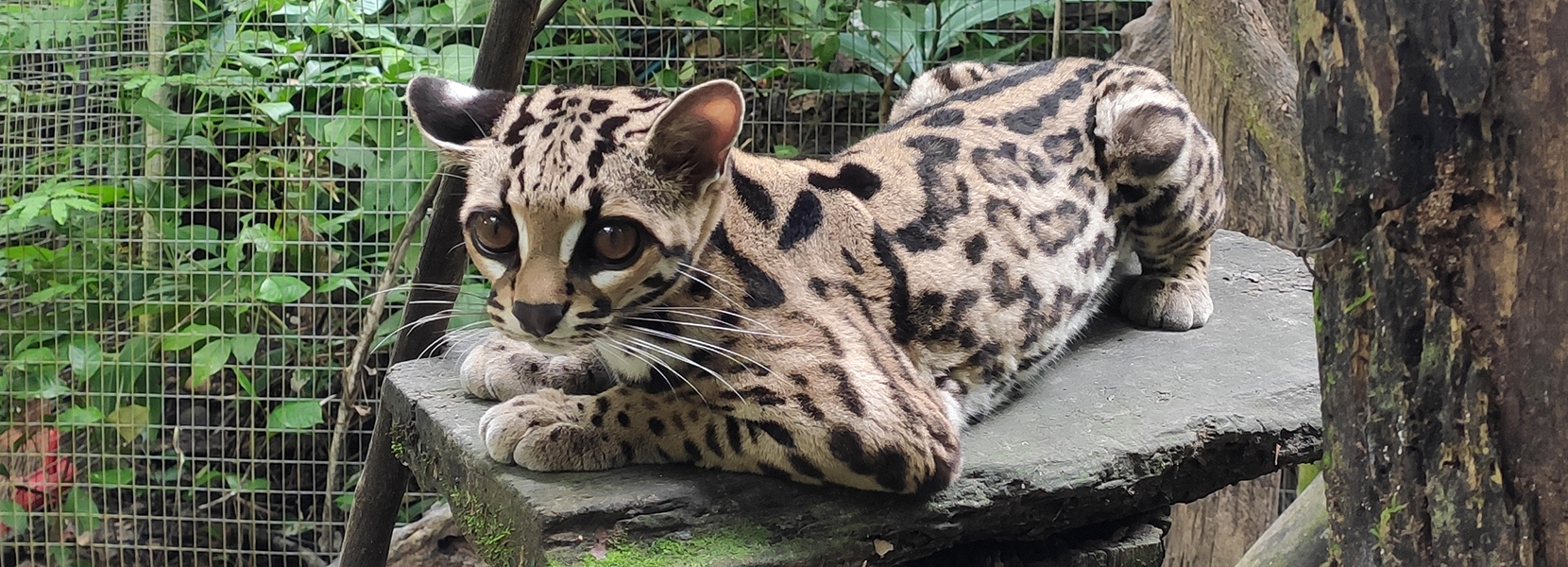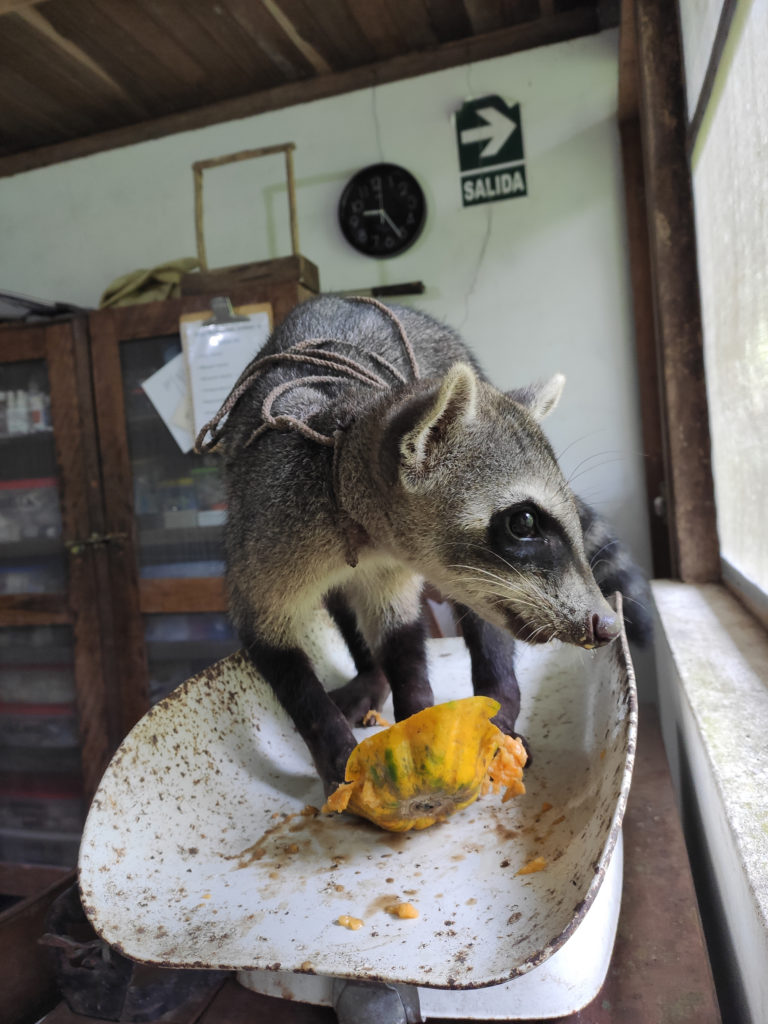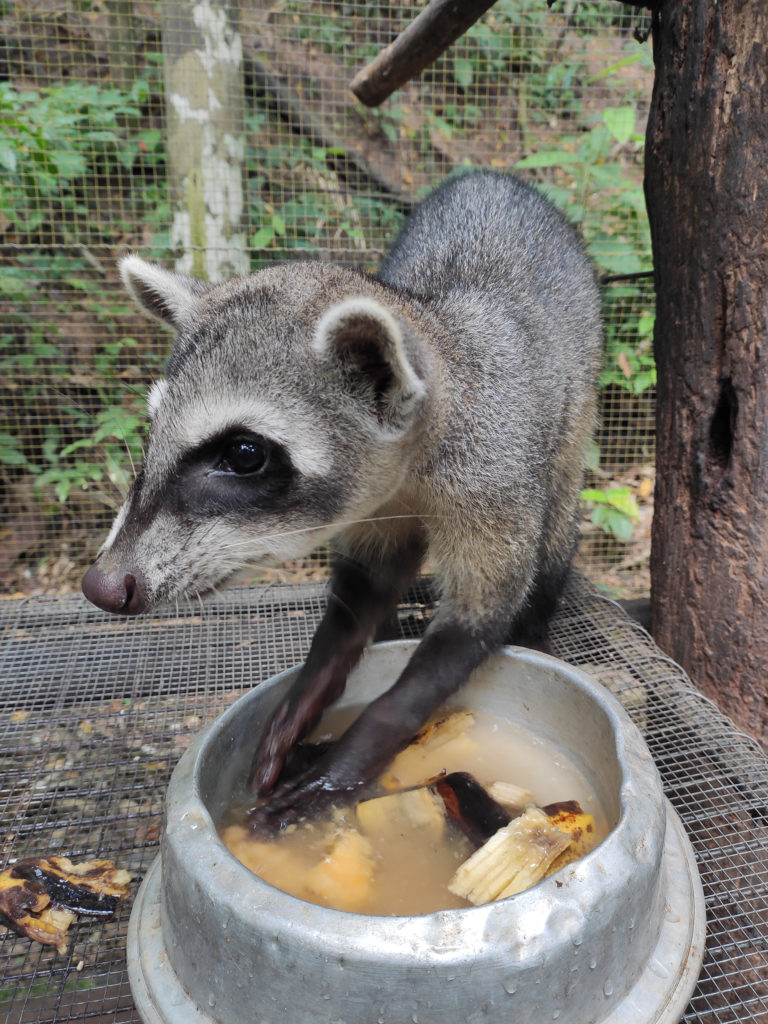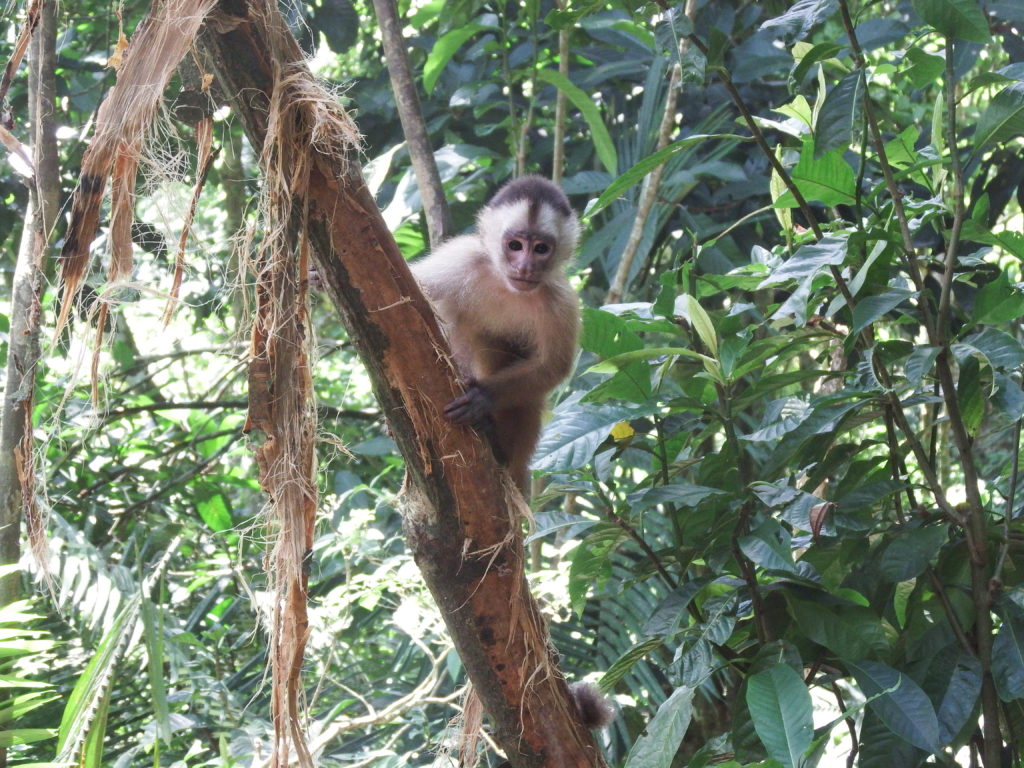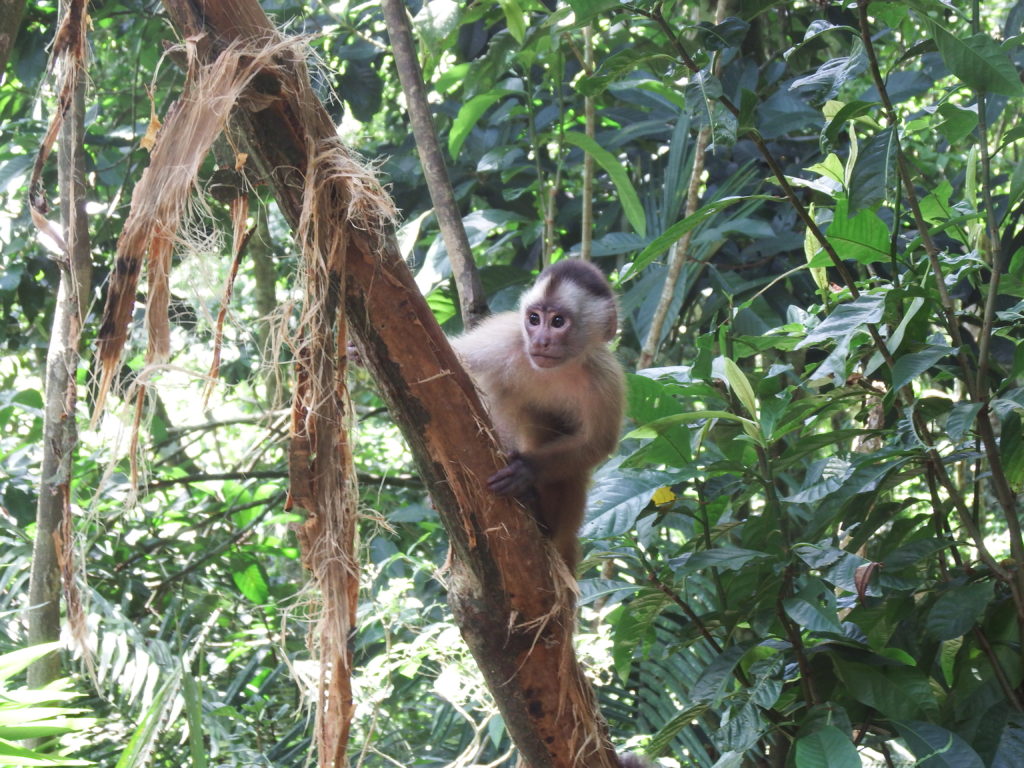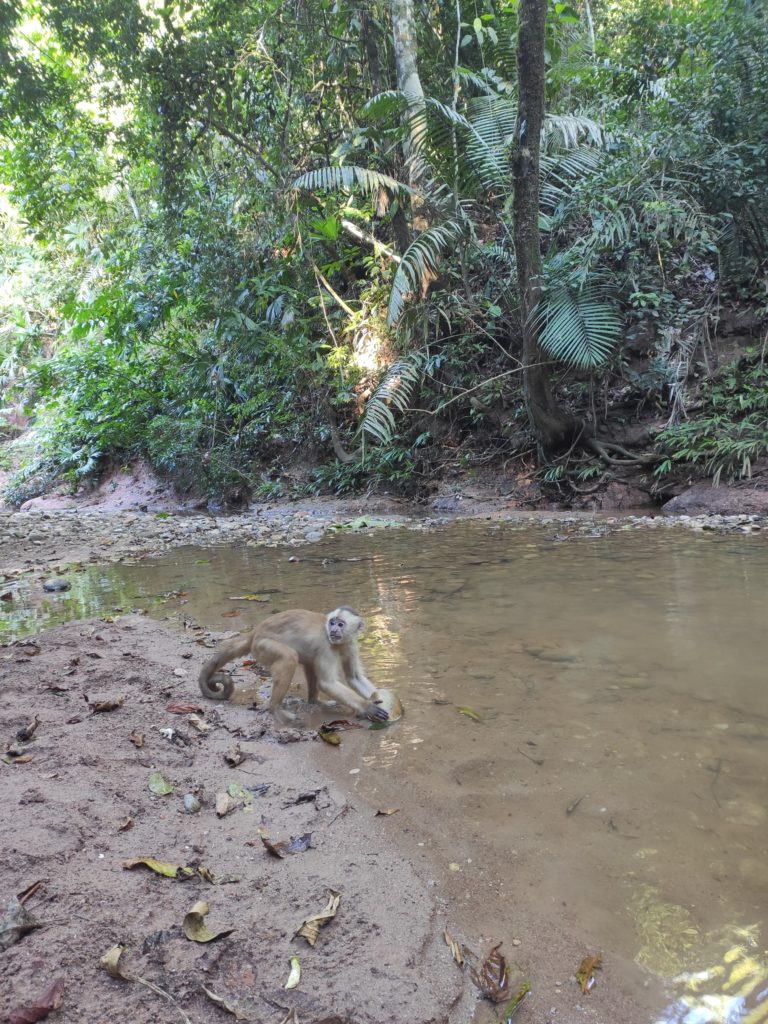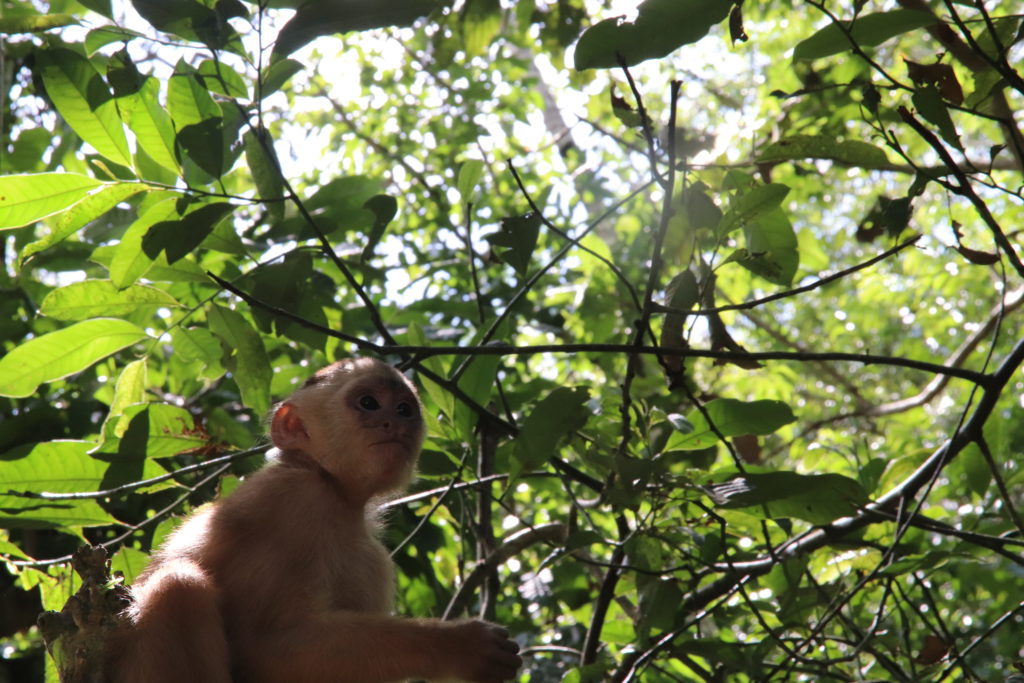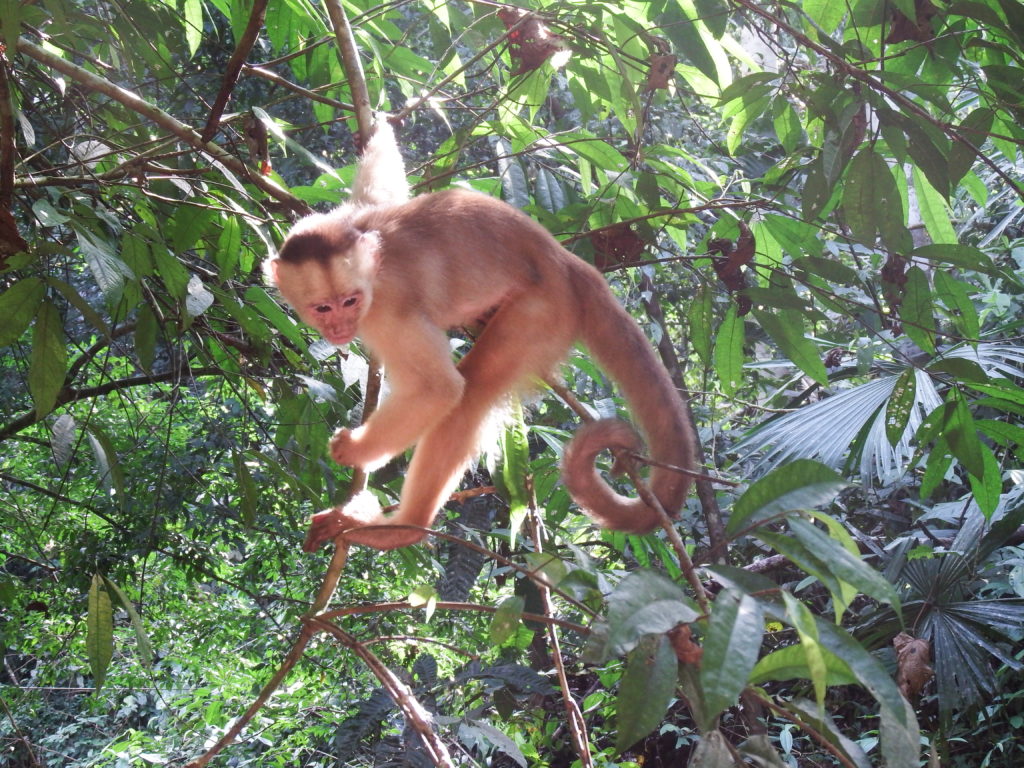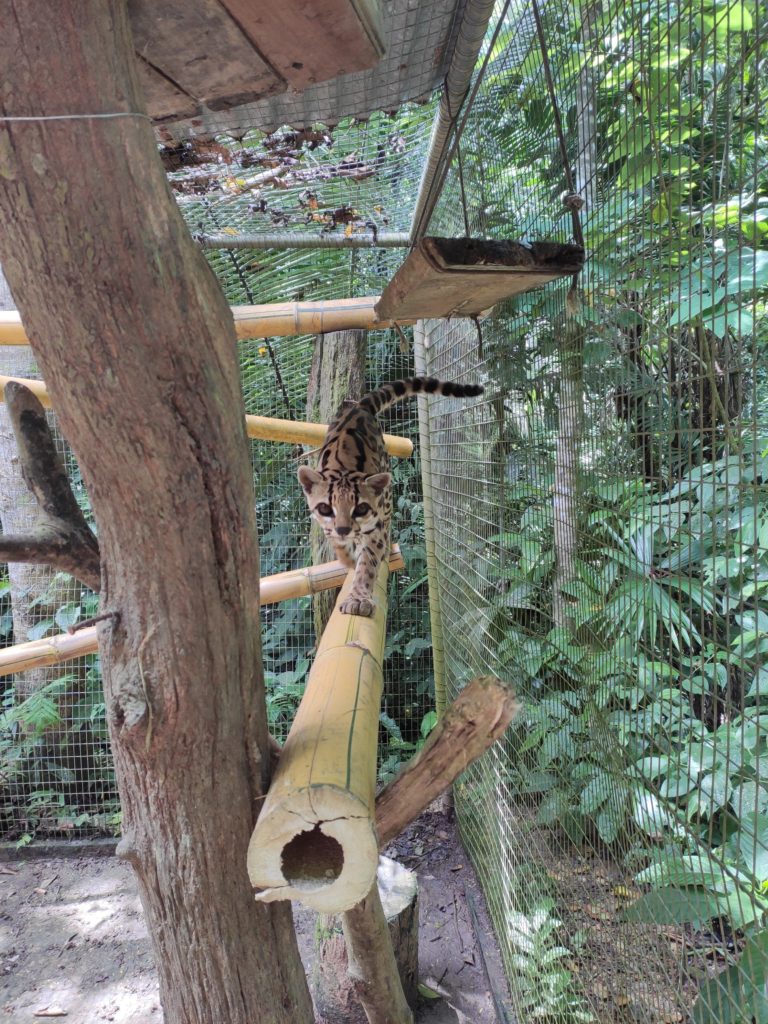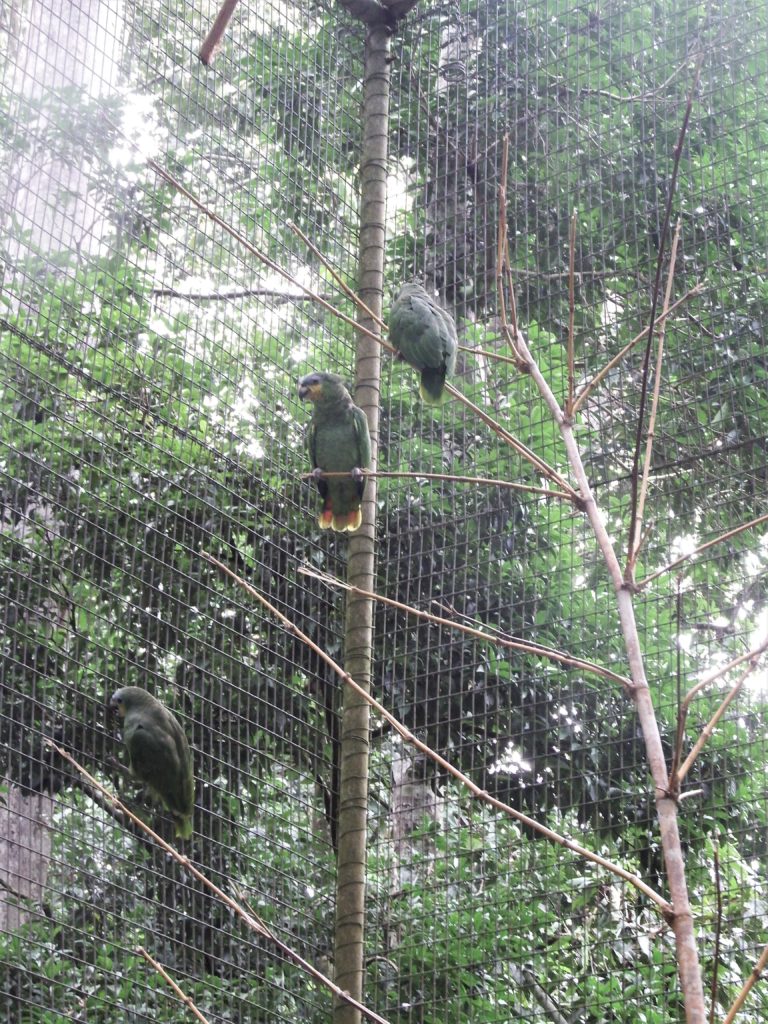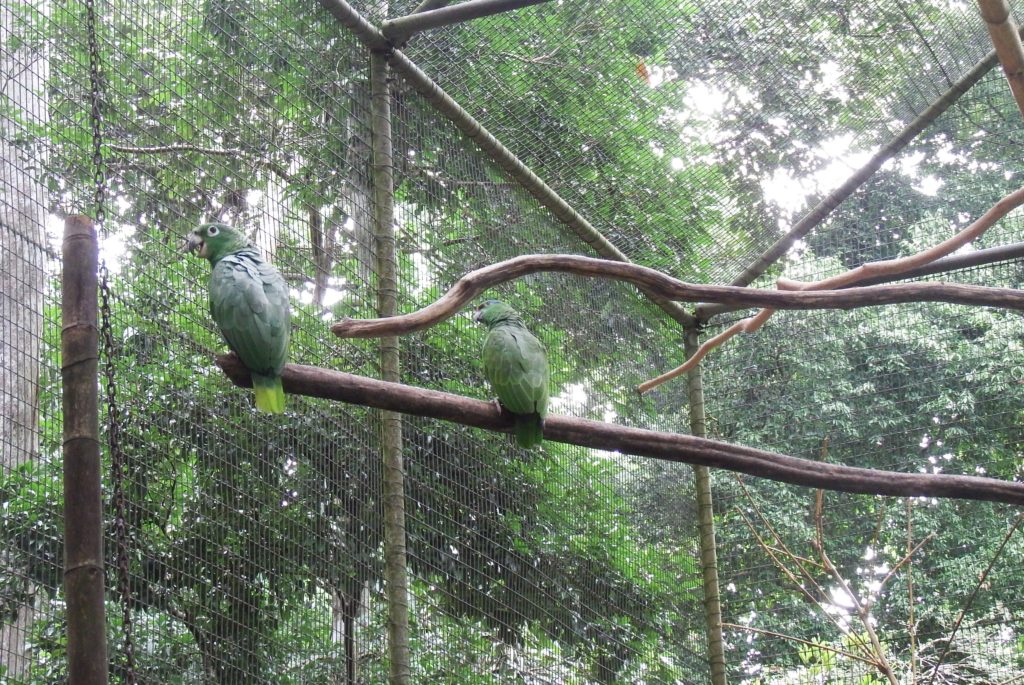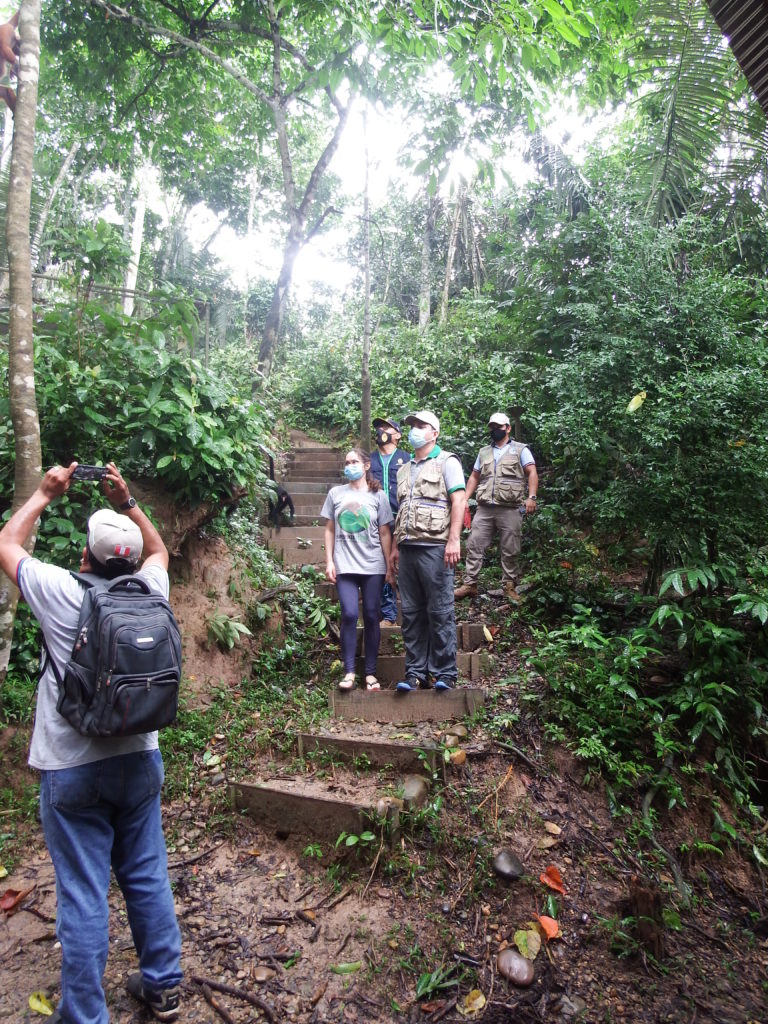
Visit Ministry of Fauna and Flora from Pucallpa 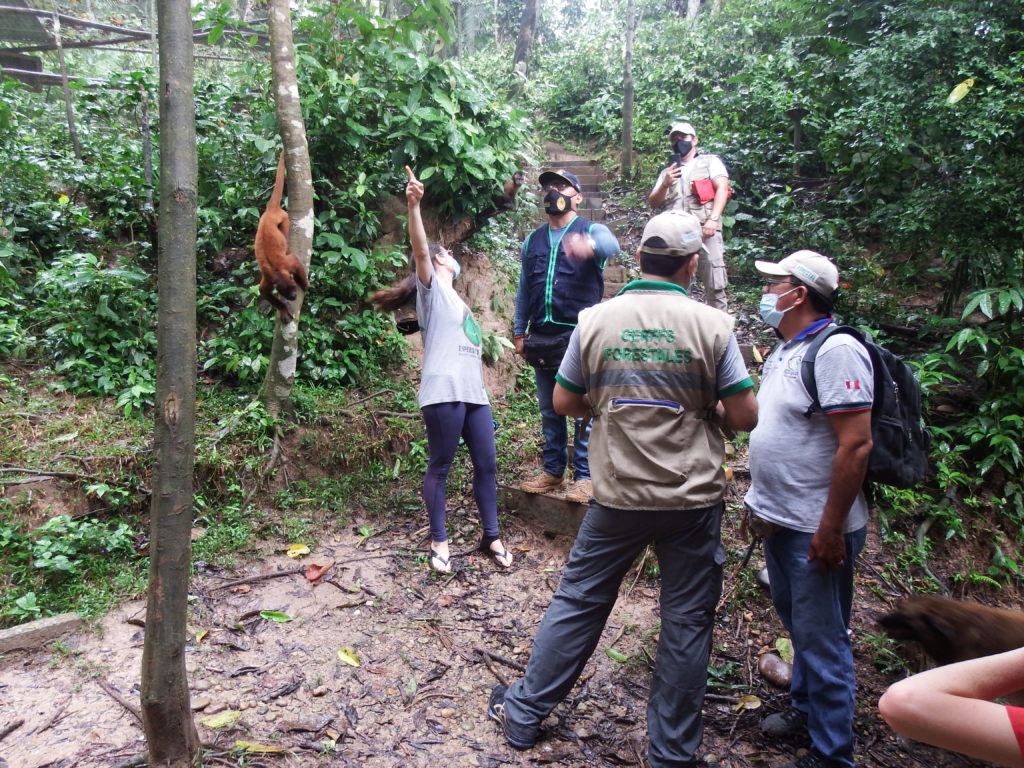
Visit Ministerio 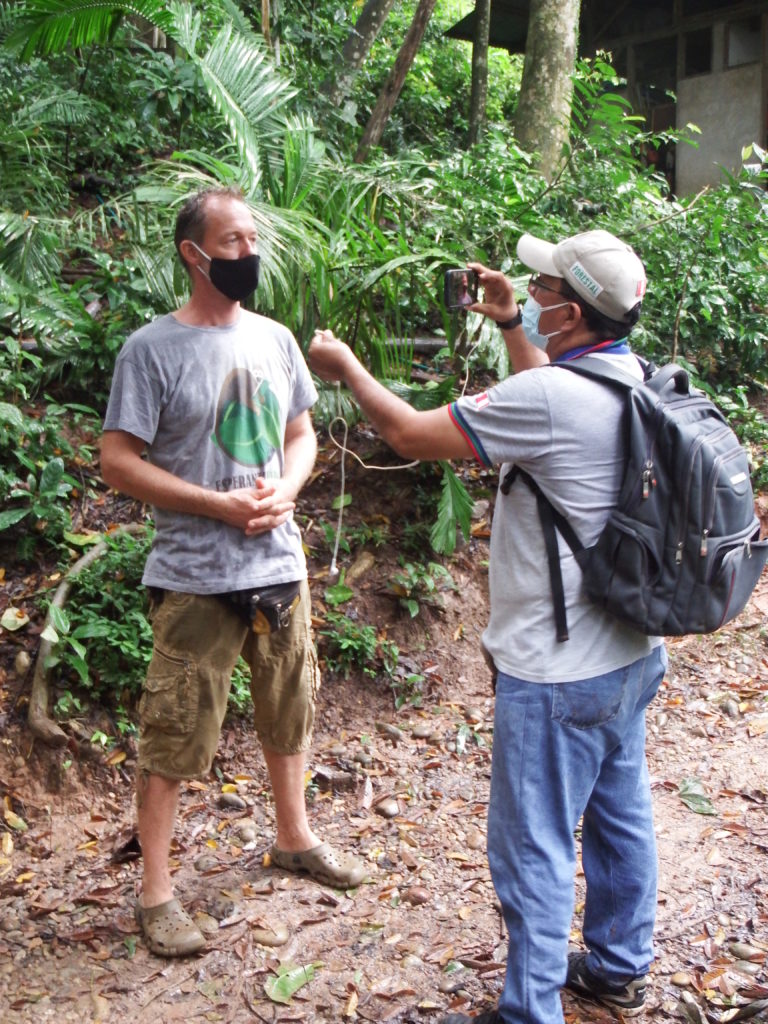
Interview with Douwe explaining our work at EV
In the midst of another rising of Covid cases in Peru, we received a visit from the Ministry of Fauna and Flora to witness the release of several animals. At Esperanza Verde life goes on thanks to all the animals in our care, which depend fully on all our devotion. With the small group (counting the family, Puck, Craig and Sandra, and Machico and Geyler standing by us) we manage to keep life as normal as possible.
 Animals
Animals
Our young female crab eating raccoon, Eona, was already getting used to living outside. Our dedicated volunteers Puck and Sandra took her out frequently at the end of the day for a walk towards the small stream to get her acquainted with the surroundings. One night she seemed to have decided freedom was a far better option than returning to the safety of her enclosure. The first few nights had us all very worried, but Puck quickly recognised one of the tell-tale signs that it was Eona coming to eat her food rather than an errant opossum. Crab eating raccoons have the habit of washing their food and so does Eona, putting it all in her water bowl, a fact that is hard to ignore in the morning when cleaning up the resulting mess. After a week we caught Eona again so that her weight and general health could be checked, before she was released again, during the presence of the Ministry from Pucallpa. Food is now left outside for Eona every night and she is frequently seen in the area around her enclosure. During the day she seems to have found a good sleeping spot outside.
As the Ministry was visiting, we took this opportunity to officially declare some other animals released as well. Two of these are Nando and Ezra, a male and female white capuchin, who both are doing so well outside. Nando, who was held as a pet before his arrival, together with Cesar, one of the male spider monkeys, is now more and more seen moving away with the outside capuchin group. Ezra is still hanging out nearby the volunteer kitchen, but bit by bit we believe she will follow the lead of the other capuchins.
Sumo, our only male coati, is another animal we officially now have released. He is generally seen on most days lurking around, trying to get some scraps of food from our buckets, as well as getting a cuddle from the family dog Tara. But more often than before, he is not seen for some days till he all of a sudden turns up having smelled the fish, while we are feeding Anishka, the otter.
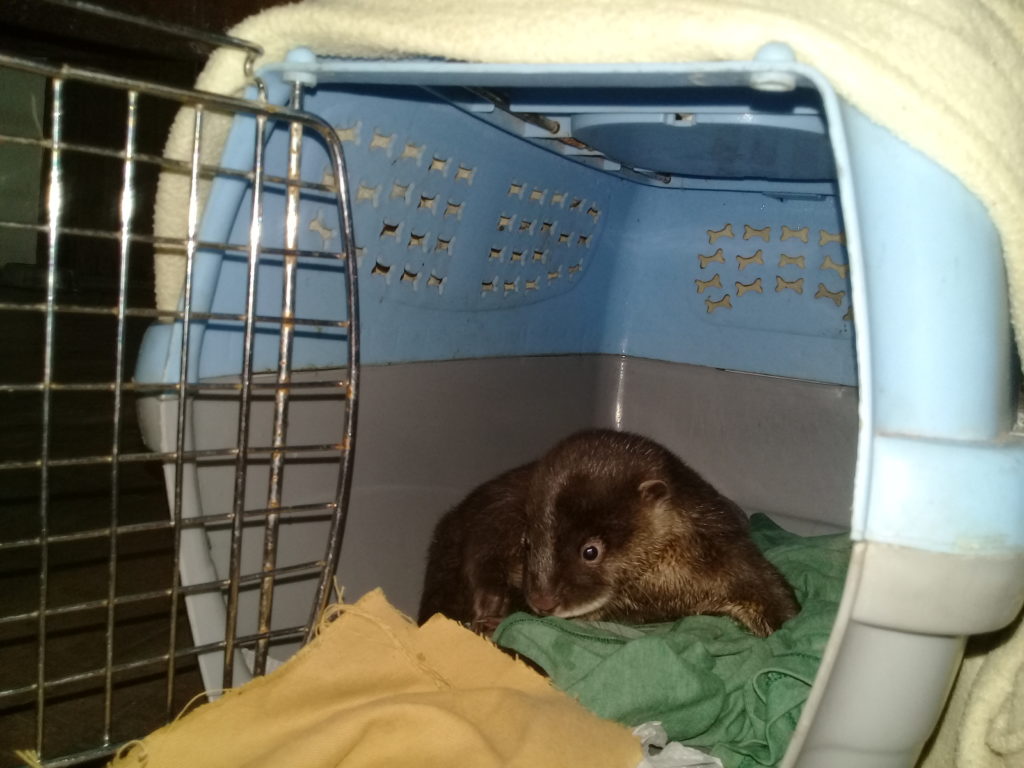
Anishka first week at EV 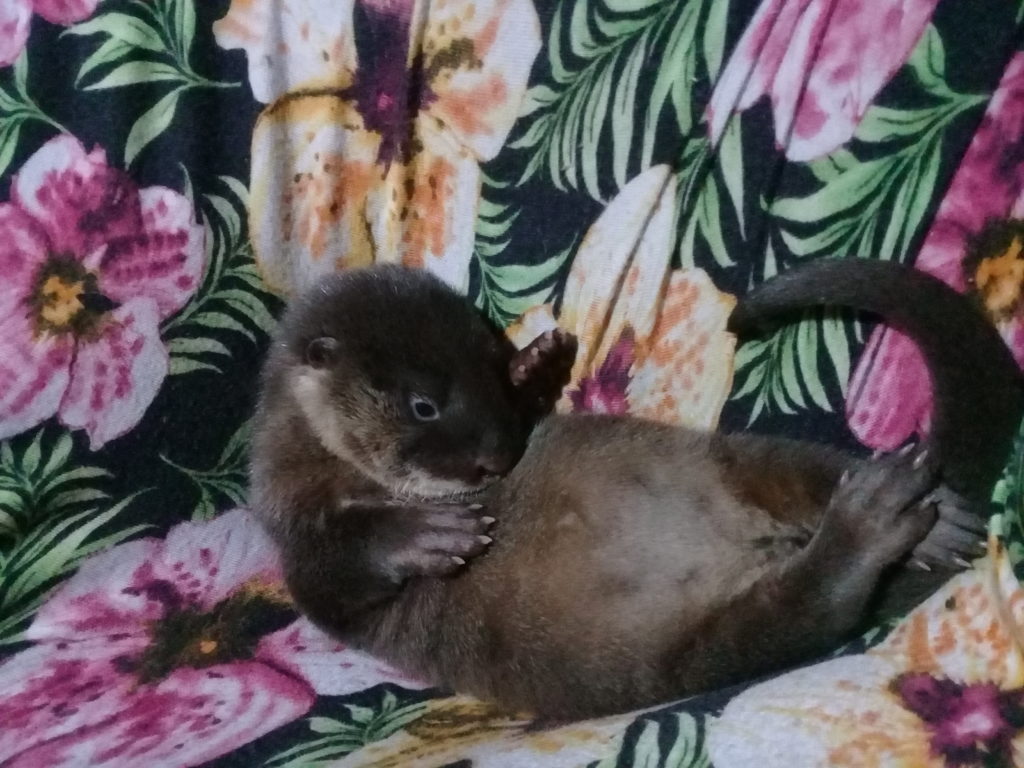
Anishka, first week at EV, just had milk
There could not have been a nicer moment for the Ministry to be present, as Anishka, our young adult female otter was taken out for a long walk through the stream. Every day she is taken for twice for long walks through the stream, so she gets to know the surroundings well, and learns to catch her food herself. Release of an animal is a slow process; it takes dedication, time and a lot of effort, for all involved. Anishka is getting better and better, catching some crabs, as well as some small fish, but she is still young, and has a long way to go. A walk with Anishka is an example of one of the privileges we have within the work we do. It shows so clearly the beauty of our work and of the animal. After having arrived here as a baby of only half a kilo, it is beautiful to see and experience the growth in size, health but also in character.
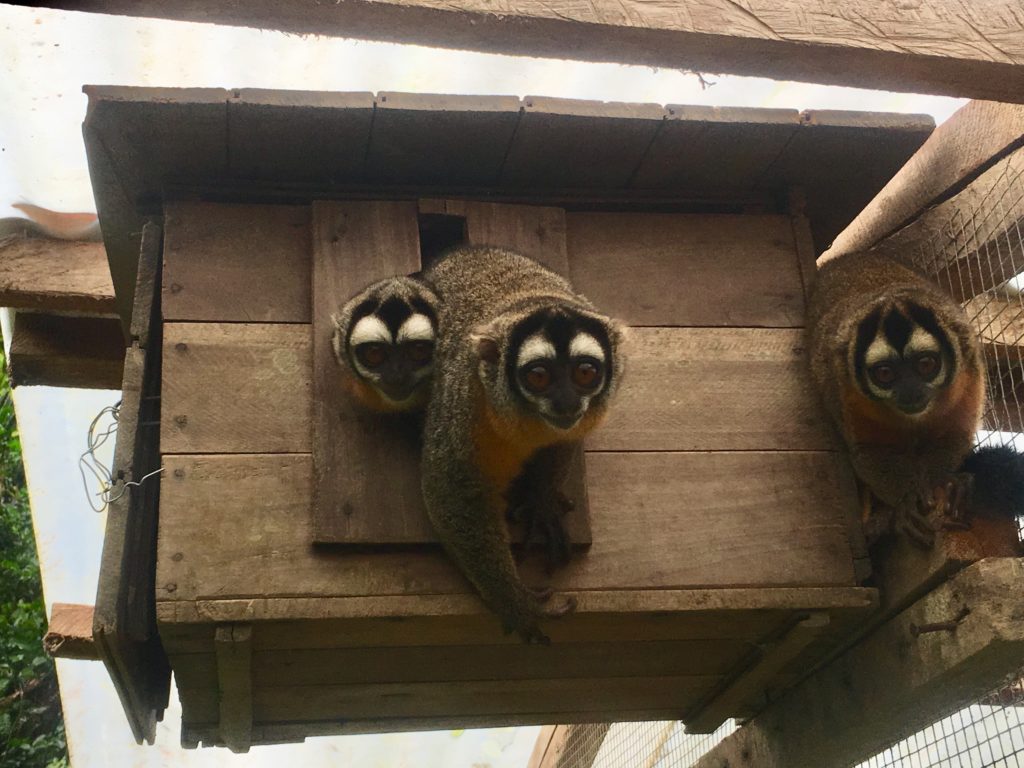
Luna, Otis and Kira (nightmonkeys) in their outside box 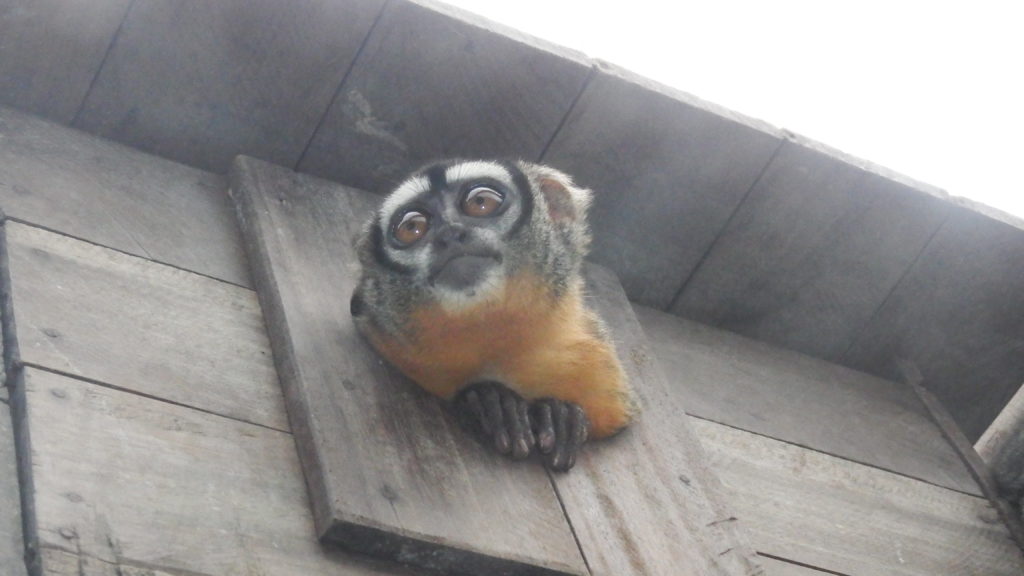
Otis (nightmonkey) 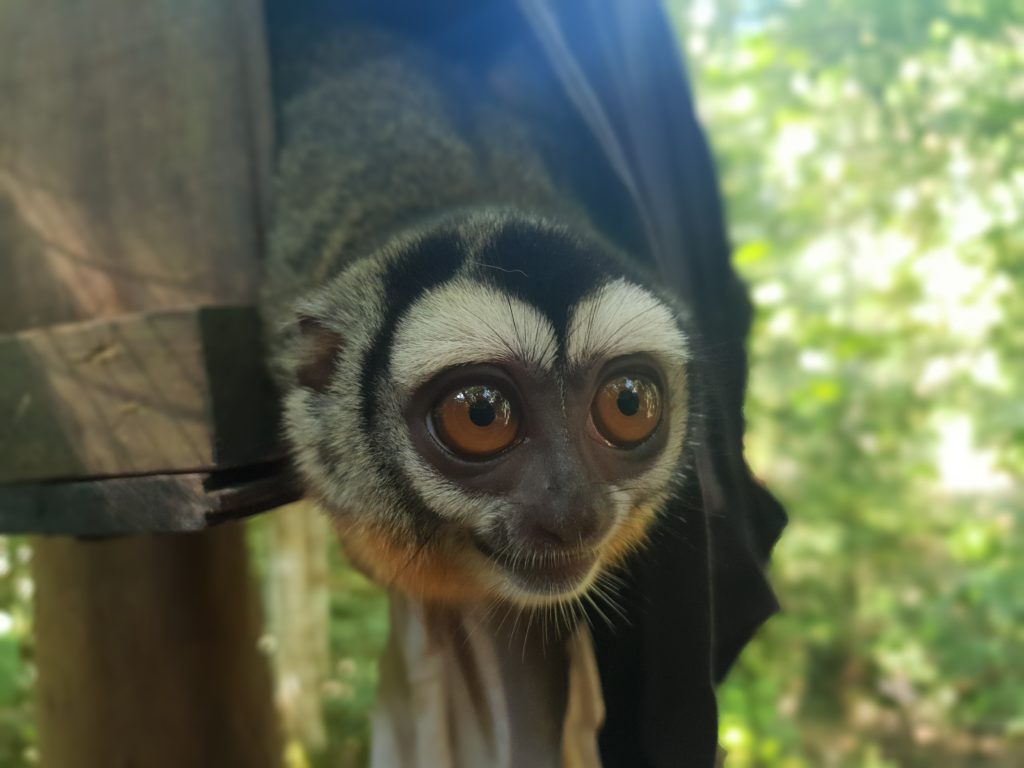
Luna 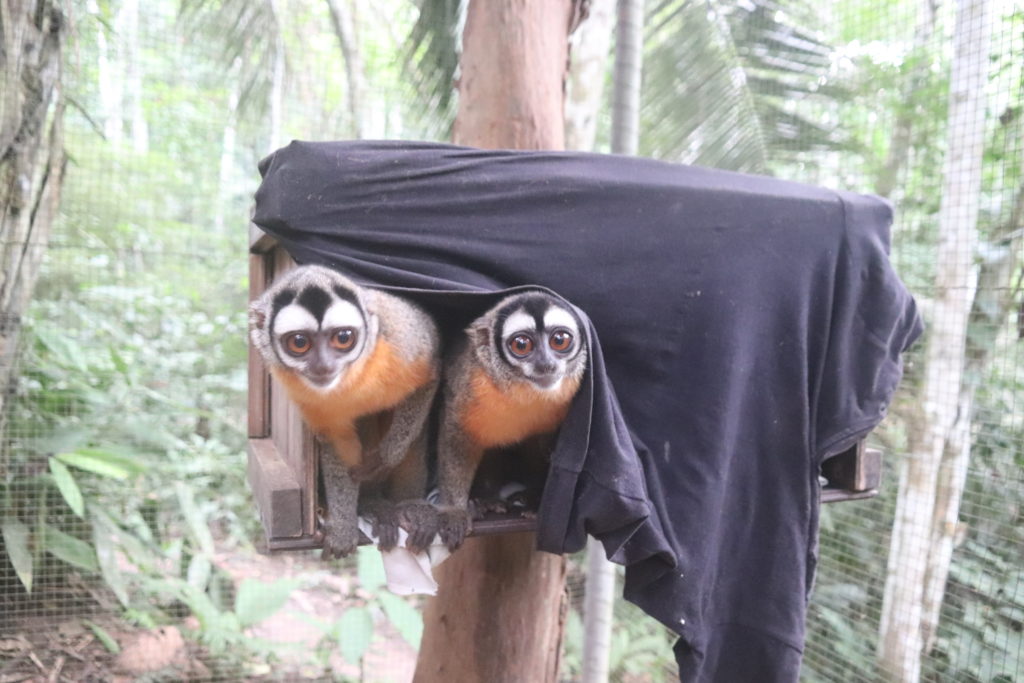
Luna and Otis in their box 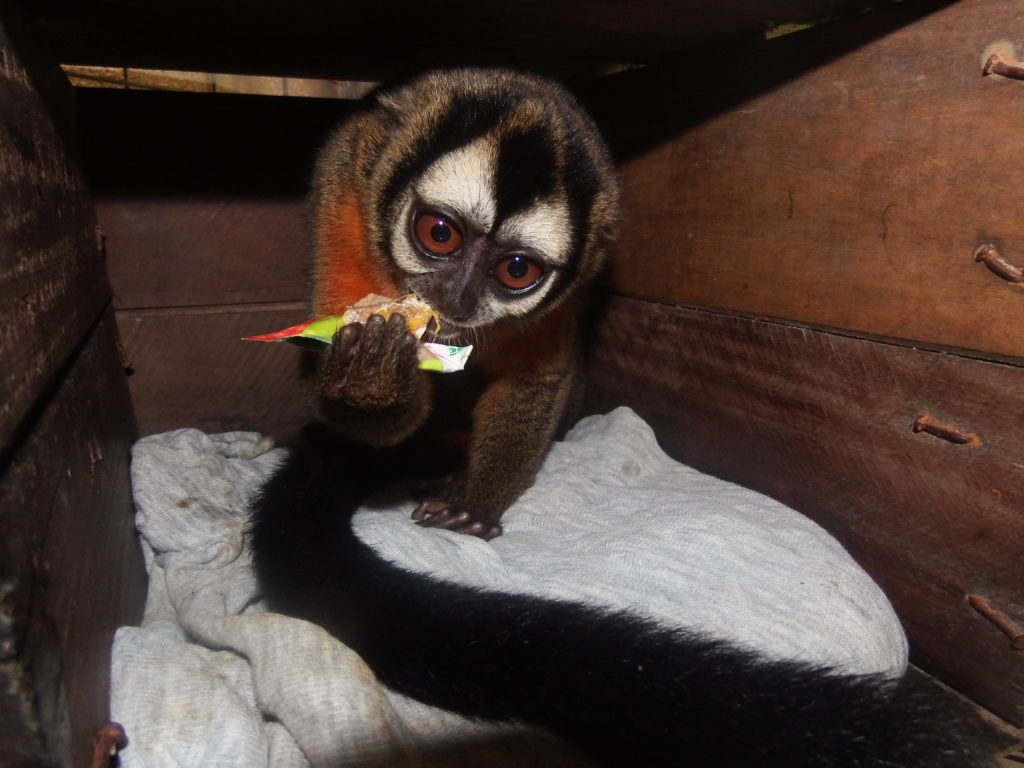
Kira (young female nightmonkey) 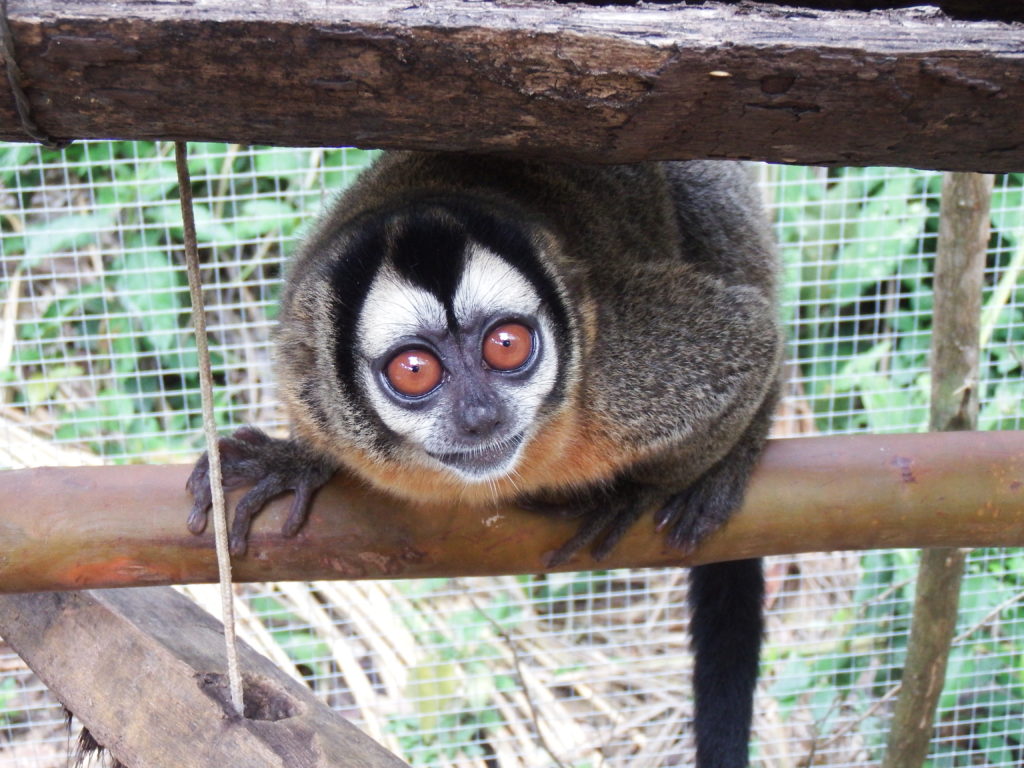
Kira (young female nightmonkey)
Luna, Otis and Kira (Ma’s night monkeys) were relocated this month, when the day of the Ministry’s visit was ending. Otis had become fairly territorial towards humans, threatening us often when we wanted to pass by their sleeping box (located near the volunteer house). So we decided it was time for them to move further away from the centre. We knew they would be ready for this, as they were doing fine on their own, being away during the night, not depending on us anymore for food, even letting us (well mainly Otis) know we were not welcome. So we caught them, gave them a final medical check-up and took them to an area a bit further away, still within their normal living range. We hope they will find a more suitable sleeping spot, without us humans waking them up during daytime. Maru, the other male Ma’s night monkey, stays in the direct surroundings of the family house, and is often seen late afternoon in the company of Chiquita, one of our female woolly monkeys.
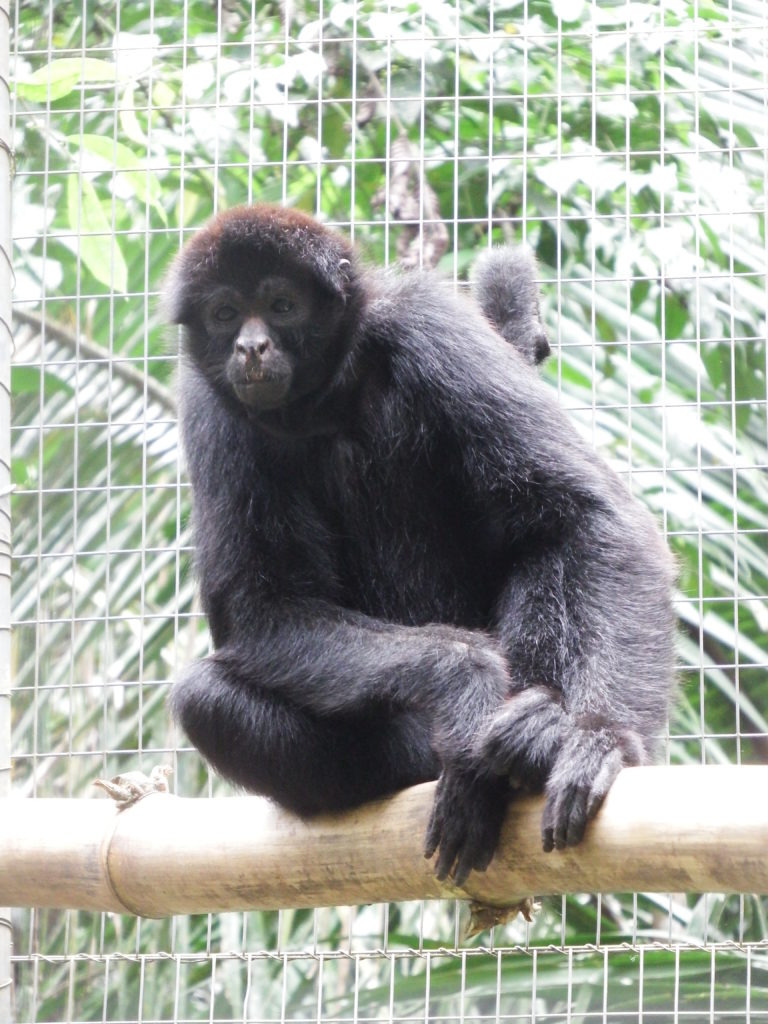
Lucio (male spider monkey) in Rimaq 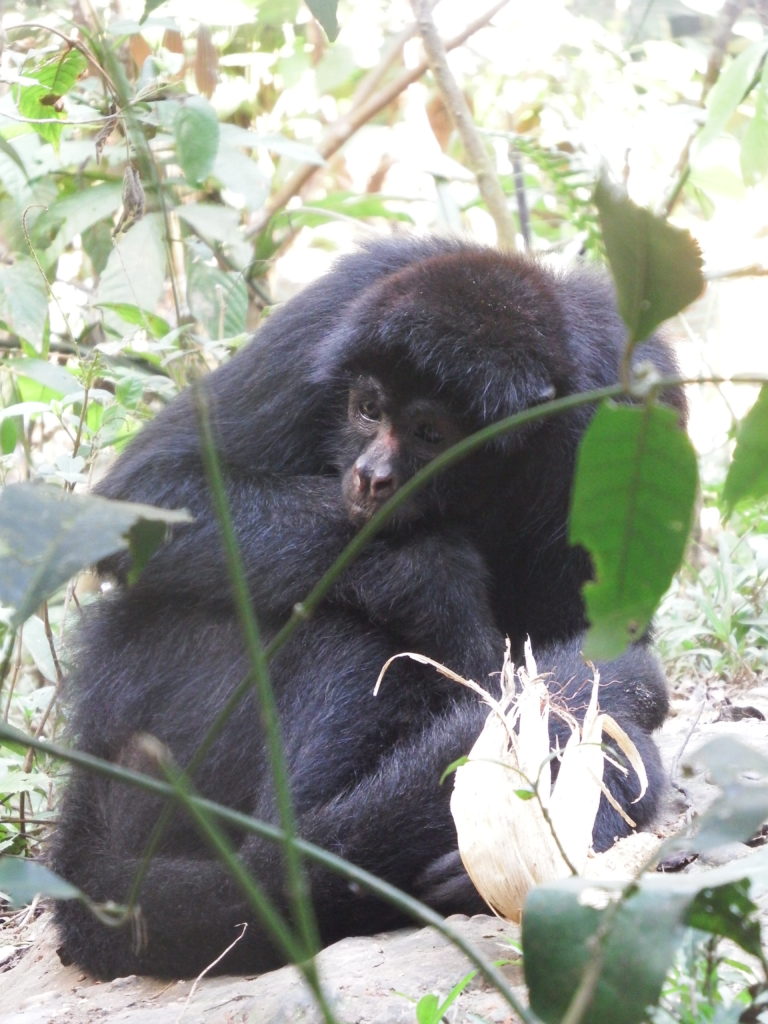
Lucio (adult male spidermonkey) 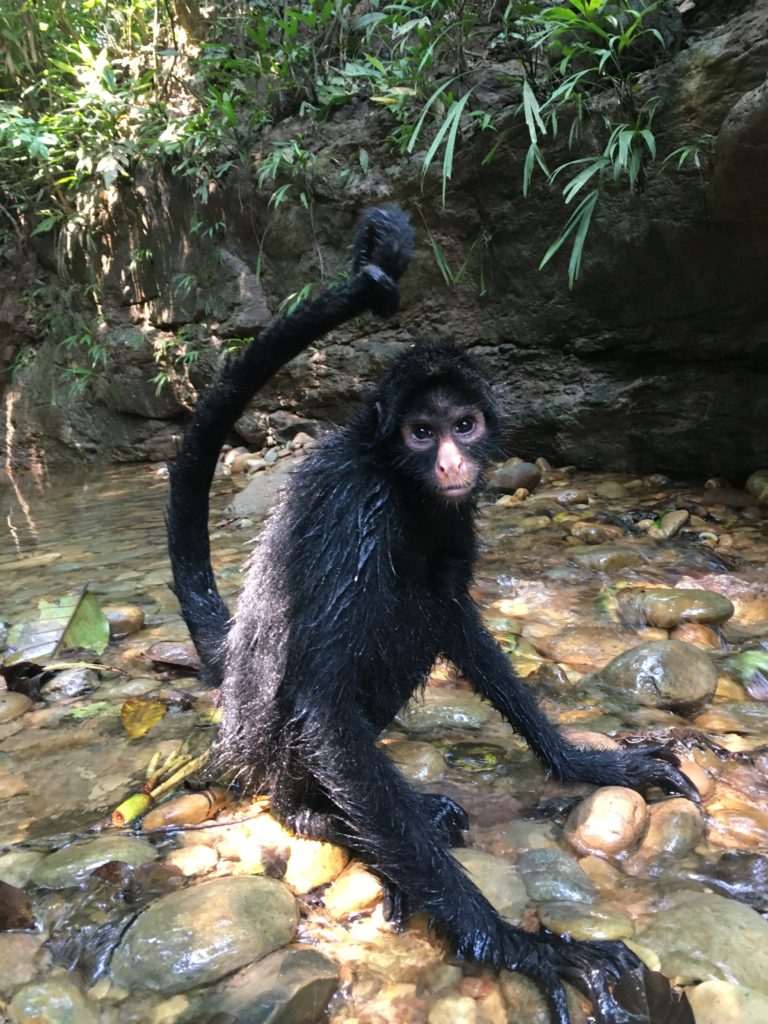
Katinka (female spidermonkey) 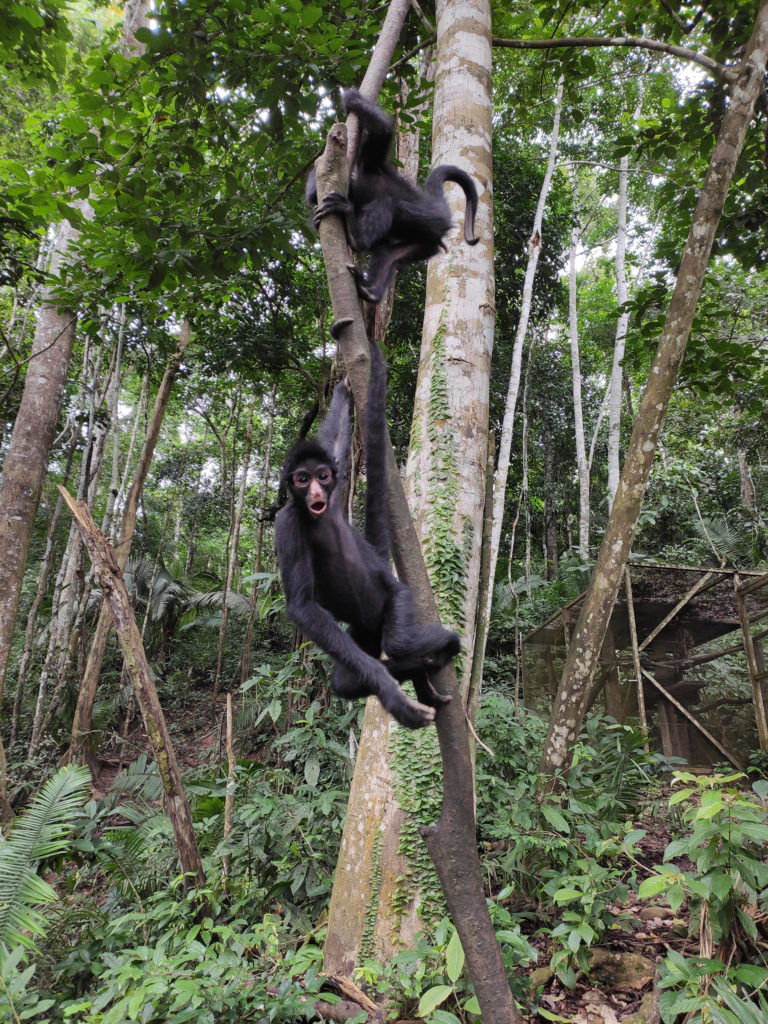
Takari (young male spider monkey) 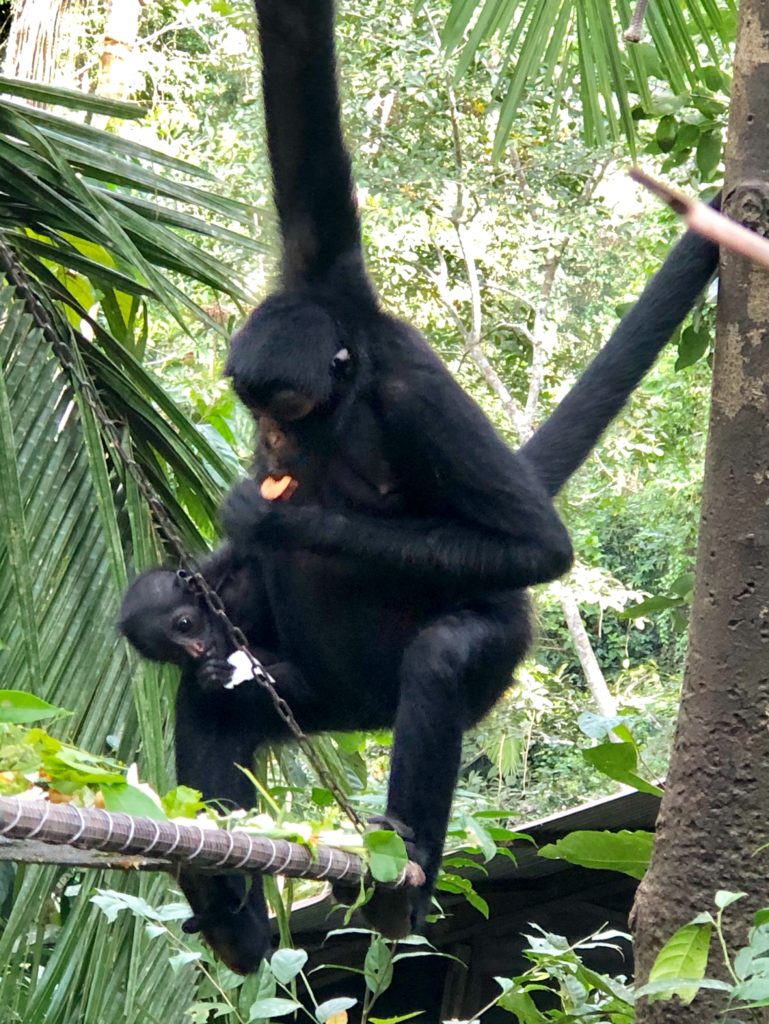
Cumala with Chula 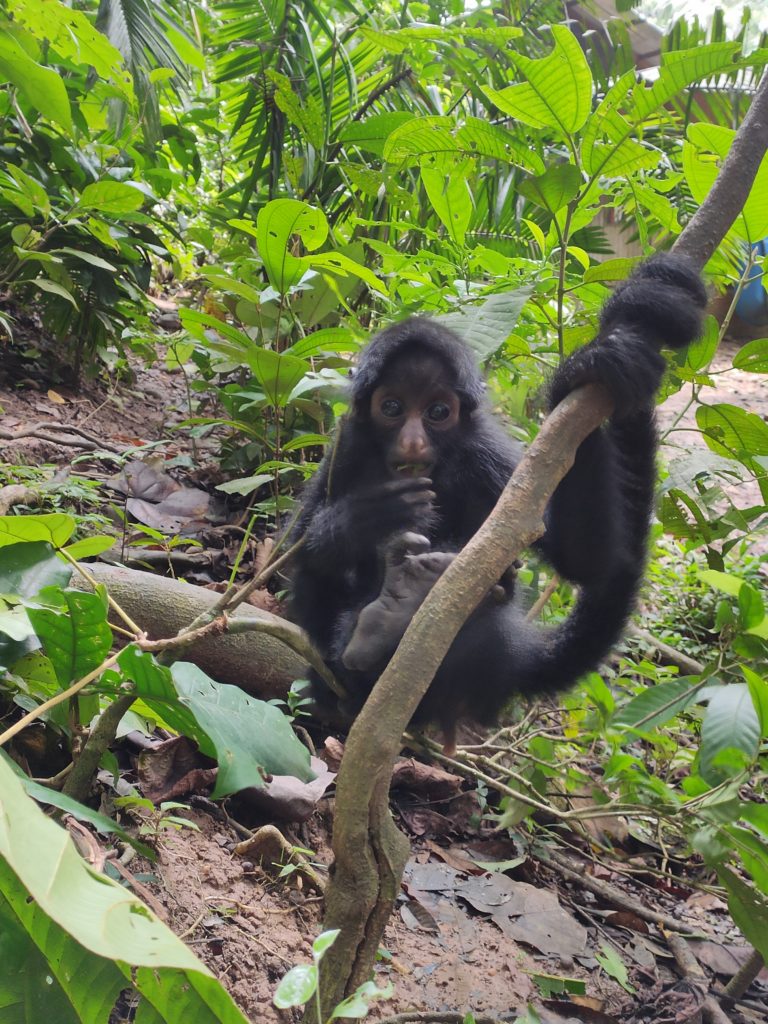
Chula female young of Cumala, Black spider monkeys 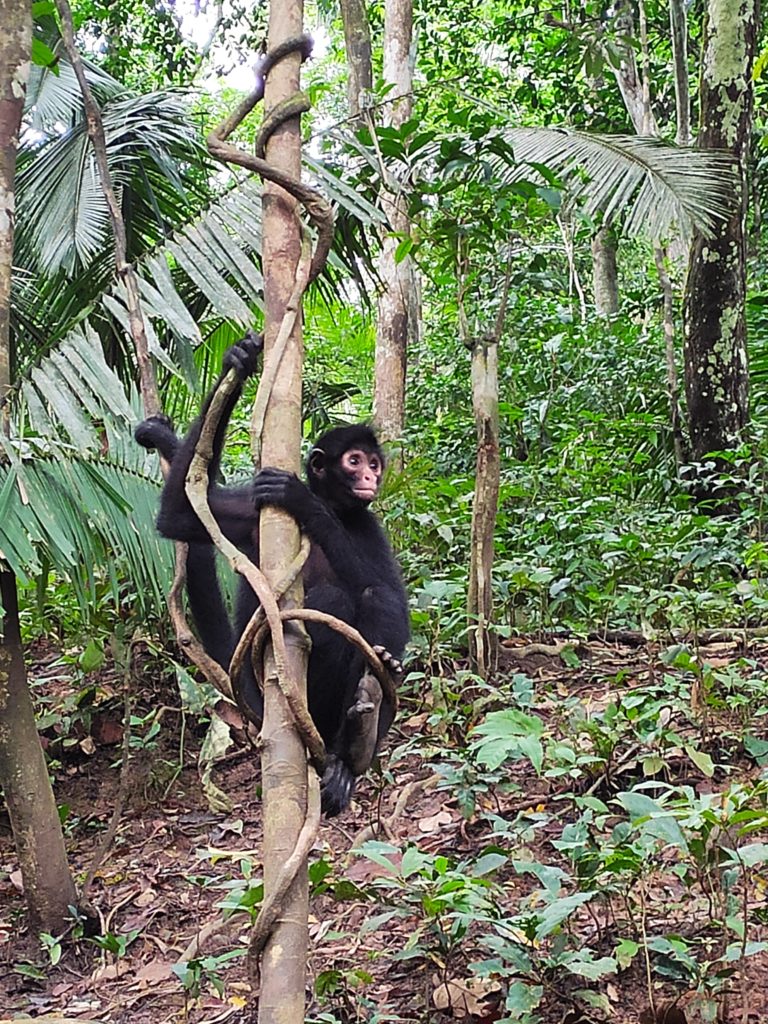
Cesar (male spider monkey) 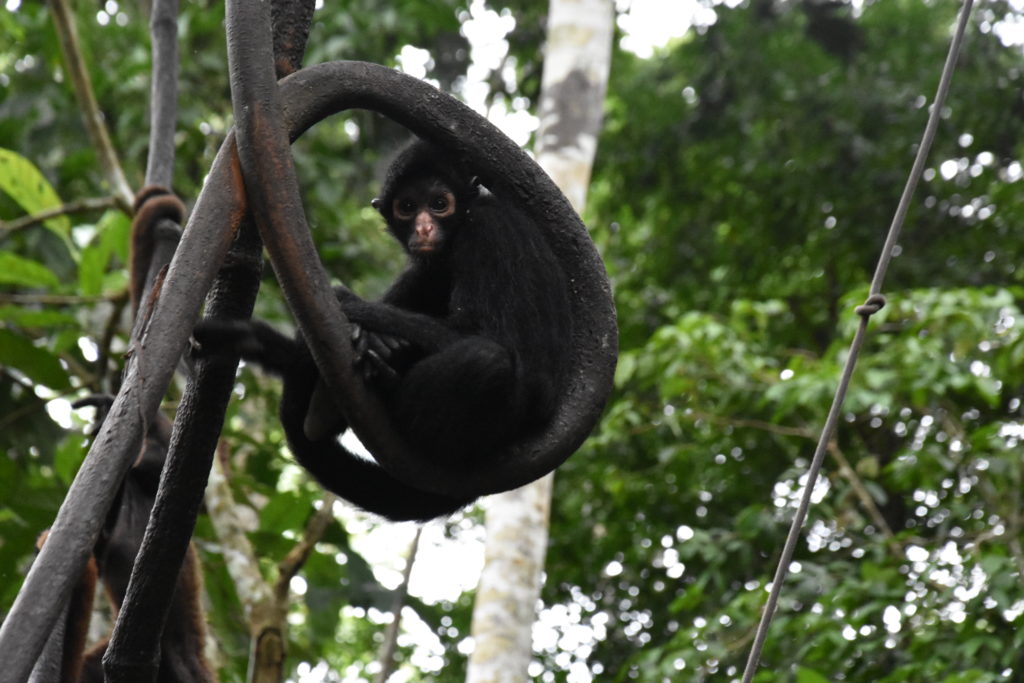
Cesar (male spider monkey) 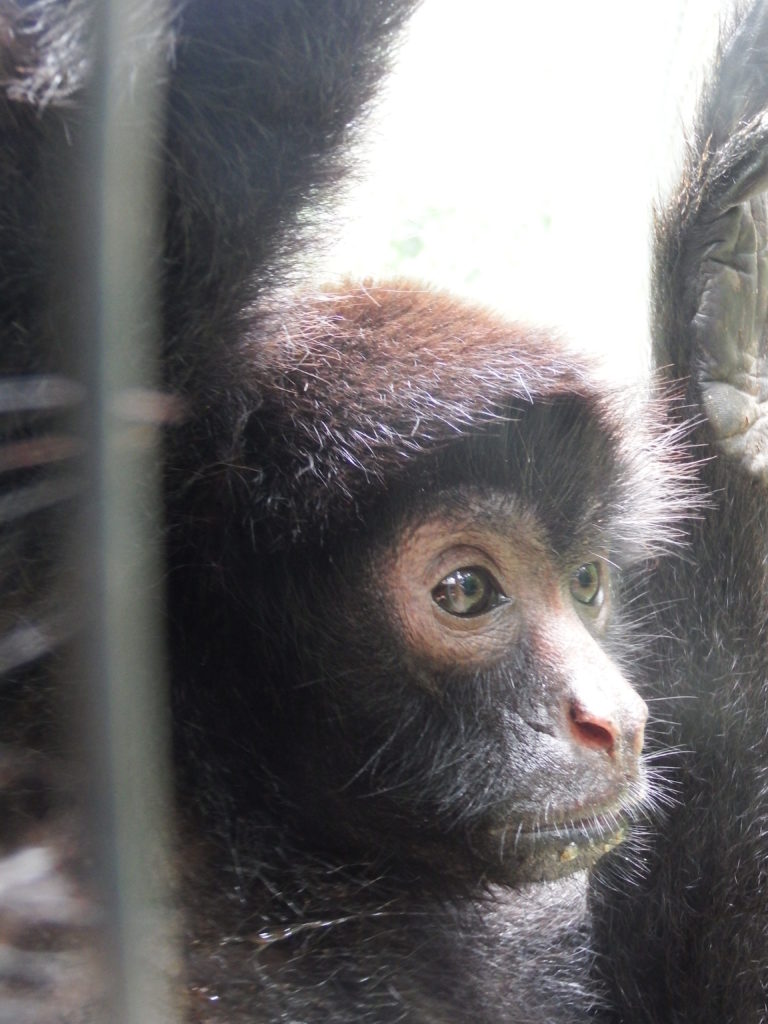
Spidermonkeys in Rimaq 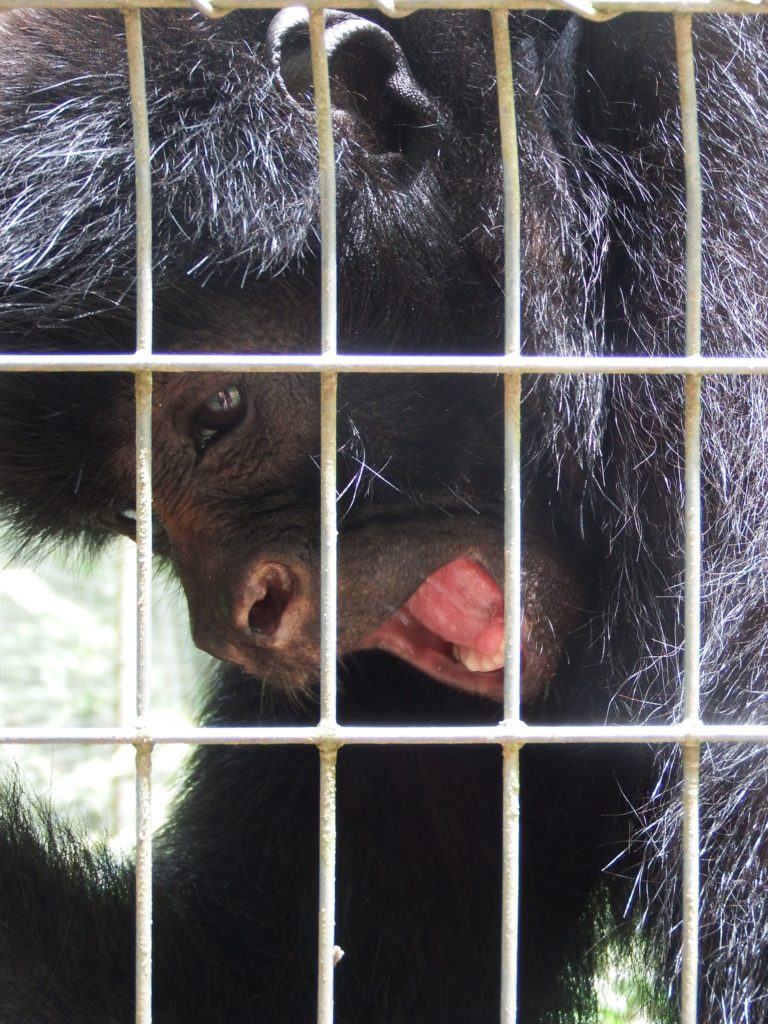
Spidermonkeys in Rimaq 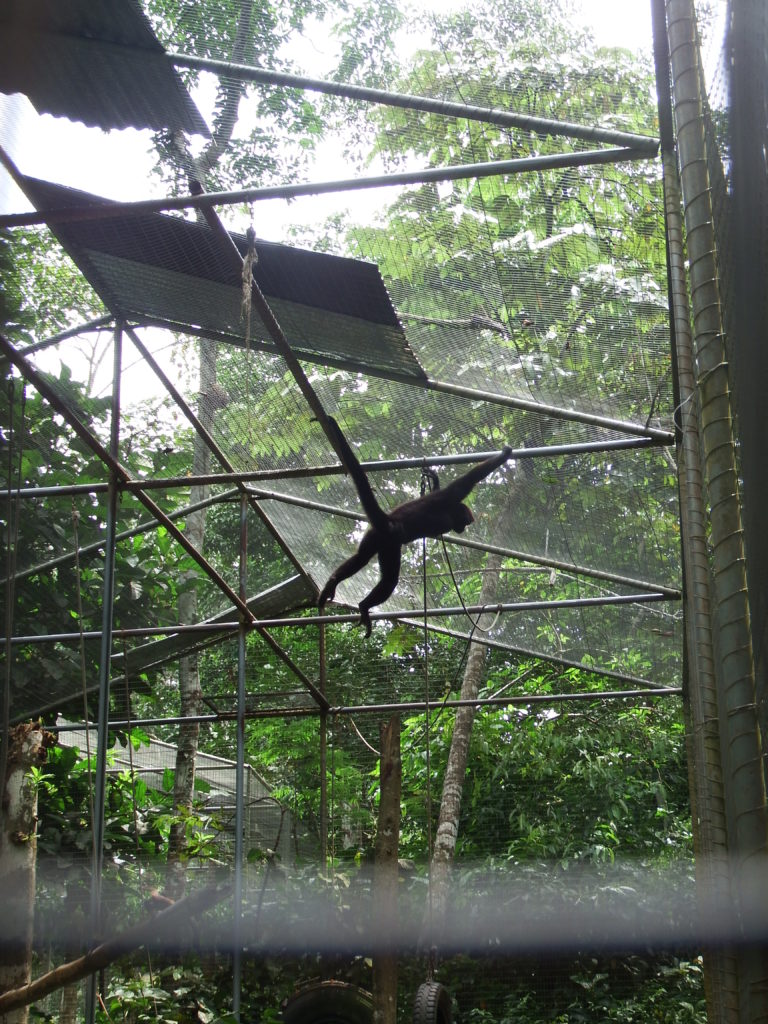
Spidermonkeys in Rimaq 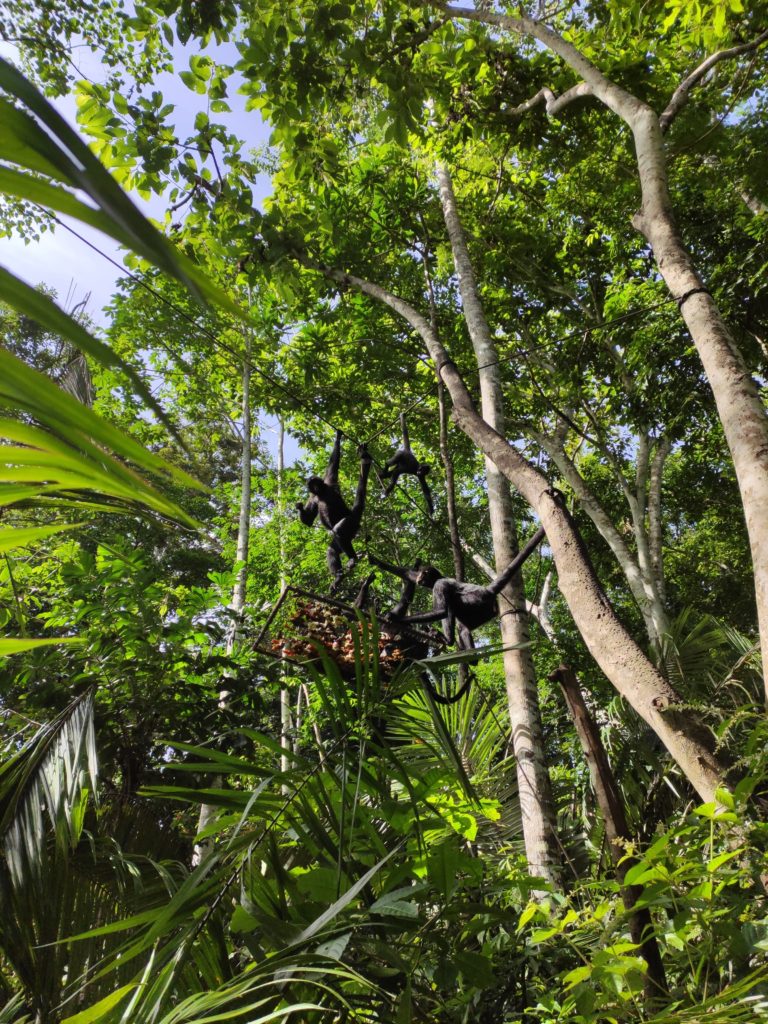
Monkey table
As we mentioned last month with the woolly monkeys, every monkey develops their own personalities and none so much as our eight Black Spider monkeys. Ranging in age from our newest baby Chula, who just celebrated her first birthday in December, to Lucio, one of our two big males who is estimated to be seventeen years old. Because of their size and their previous dealing with humans prior to Esperanza Verde our two biggest males Lucio and Rimaq reside within an enclosure they share with four capuchin monkeys, whereas the remaining six black spider monkeys roam free and are never far from sight causing mayhem and general tomfoolery. Chula was born at Esperanza Verde and is the product of a coupling between Rimaq or Lucio and Cumala (one of our larger females). Although Chula becomes more independent each day, Cumala is never far away keeping an eye out. Baby spider monkeys are normally weaned between 12 and 20 months so Cumala will have this growth attached for a while longer yet. Our two young males let their presence be known, trying to get volunteers’ attention by screaming or dancing to obtain responses. Takari, our youngest male is particularly good at doing pirouettes whenever a male volunteer or worker is in attendance. Cesar, who came here as a young juvenile, together and very attached to the male white capuchin, Nando, was mainly on his own in the first months. It took some time, but he now is very well adapted outside, has formed a close bond with the other spider monkeys, is playing with all, including still on occasion with Nando.
 SUST Animal Orphan Hospital
SUST Animal Orphan Hospital
The SUSTOAH had a relatively quiet month with more focus on general check-ups, weights, the occasional deparasitation and with only two ‘patients’ having prolonged visits.
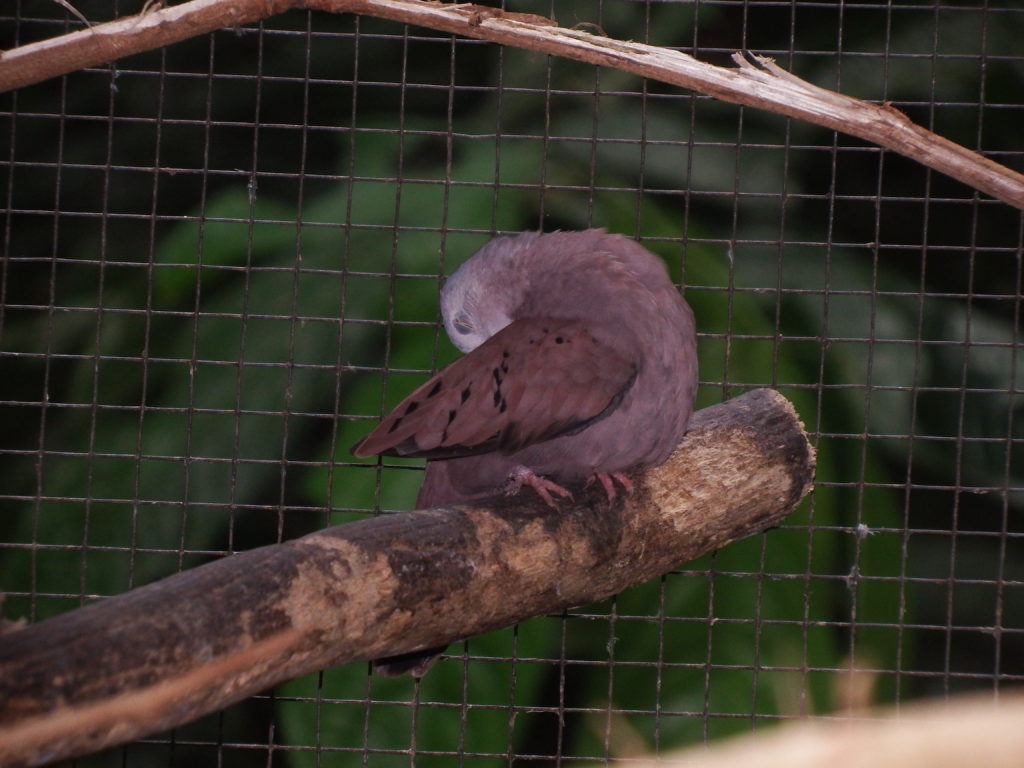
Icarus back in Igor 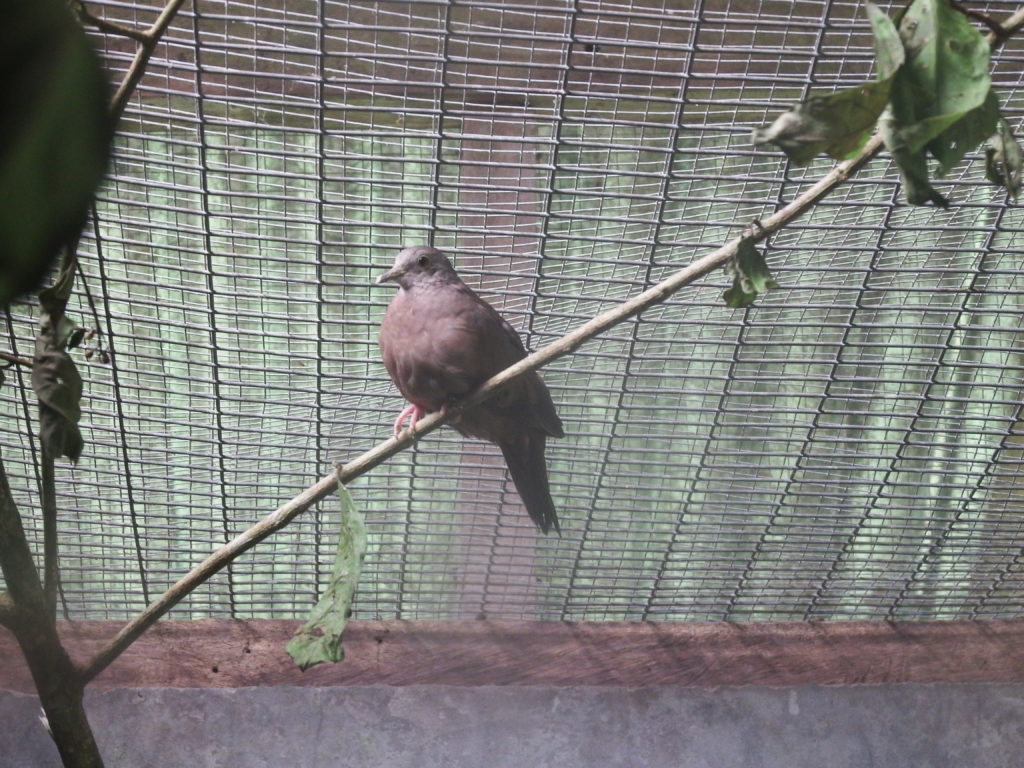
Icarus (dove) in clinic
Icarus one of our Ruddy ground doves was found with a broken leg. There was not a lot to be done in such a situation, except for giving him some time and sufficient rest (not too much movement) in an environment of very little stress. After some weeks of rest he could return to the other doves and parakeets in the Igor enclosure.
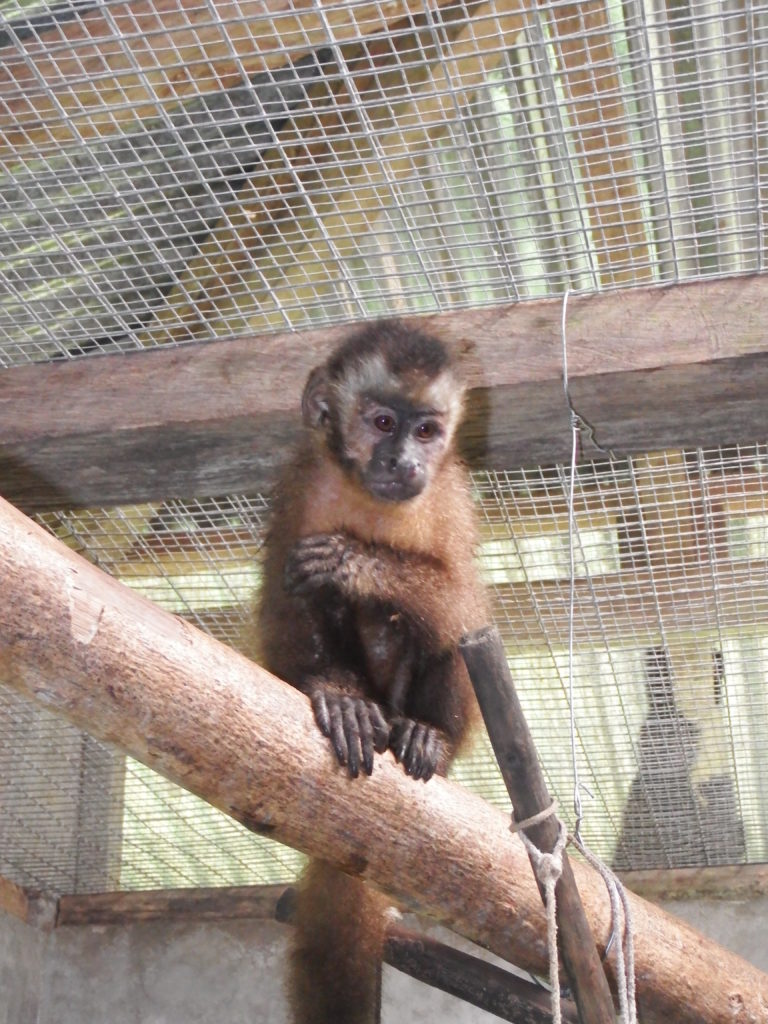
Traya (young female capuchin) in clinic 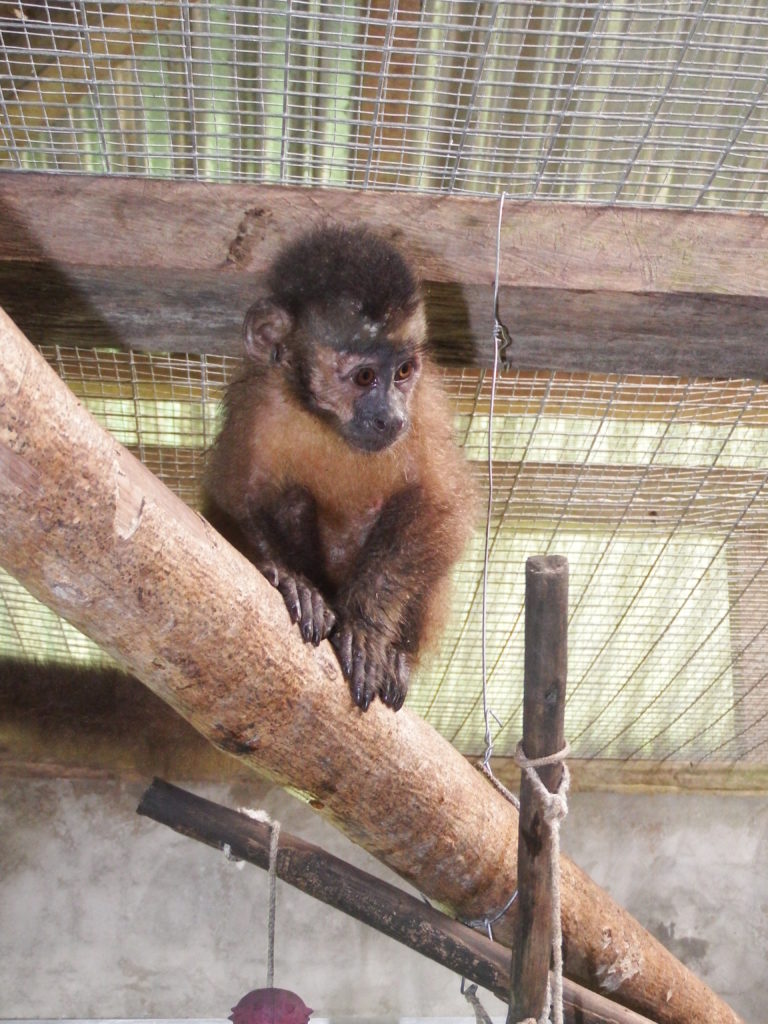
Traya (young female capuchin) in clinic 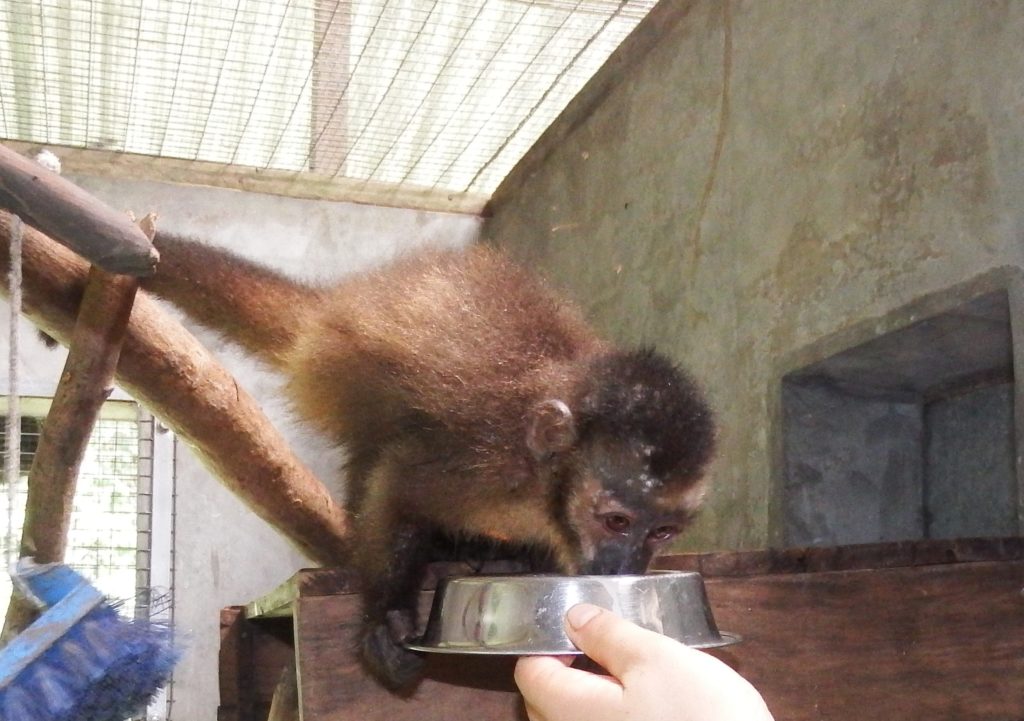
Traya (young female capuchin) in clinic
Traya, a young female, large headed capuchin monkey, who is newest member of the outside capuchin group, having arrived less than half a year ago, seemed to have some problems with skin parasites. We brought her into the clinic for treatment, observation and some extra attention towards her diet. As she is one of the newcomers, she is low in the hierarchy and does not always get enough outside. She is interacts well with two of the younger, earlier introduces females, but does not receive a lot of attention from the adults, who could help her e.g. by grooming, and taking care of any parasites that might befall her outside. It will take some time for her to establish her place within the group and get sufficiently food intake. We will take some time to get Traya strong enough again so she can join her outside friends again and take her place within the group.
 New arrivals
New arrivals
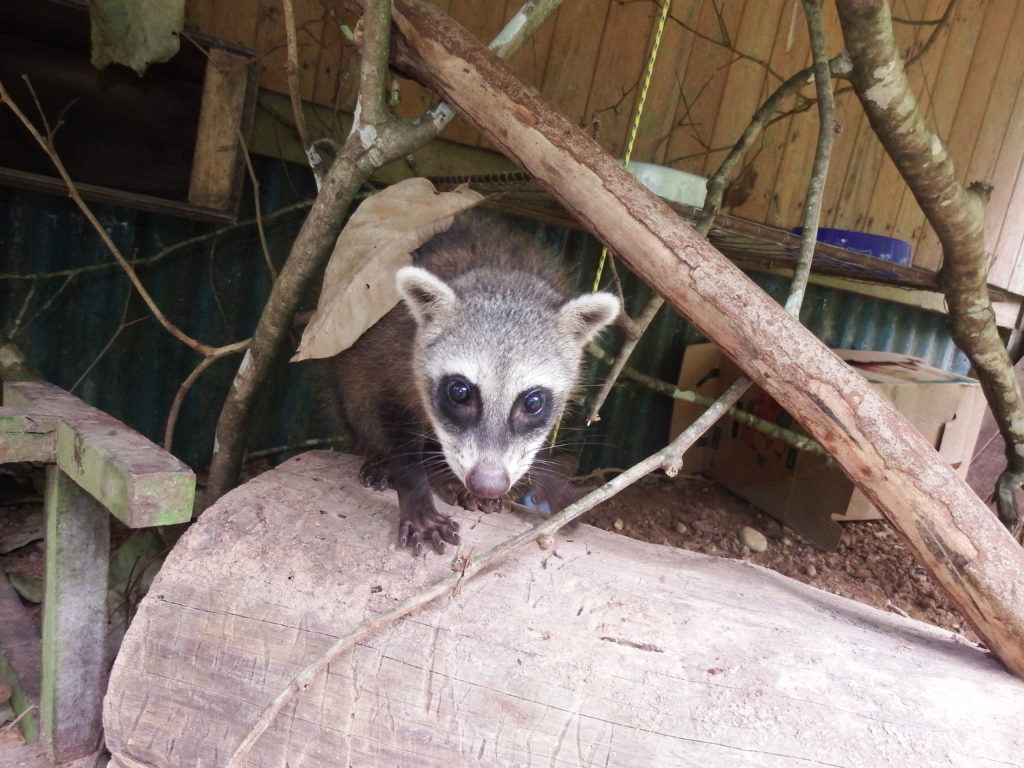
Payco, crab eating raccoon in his new surroundings 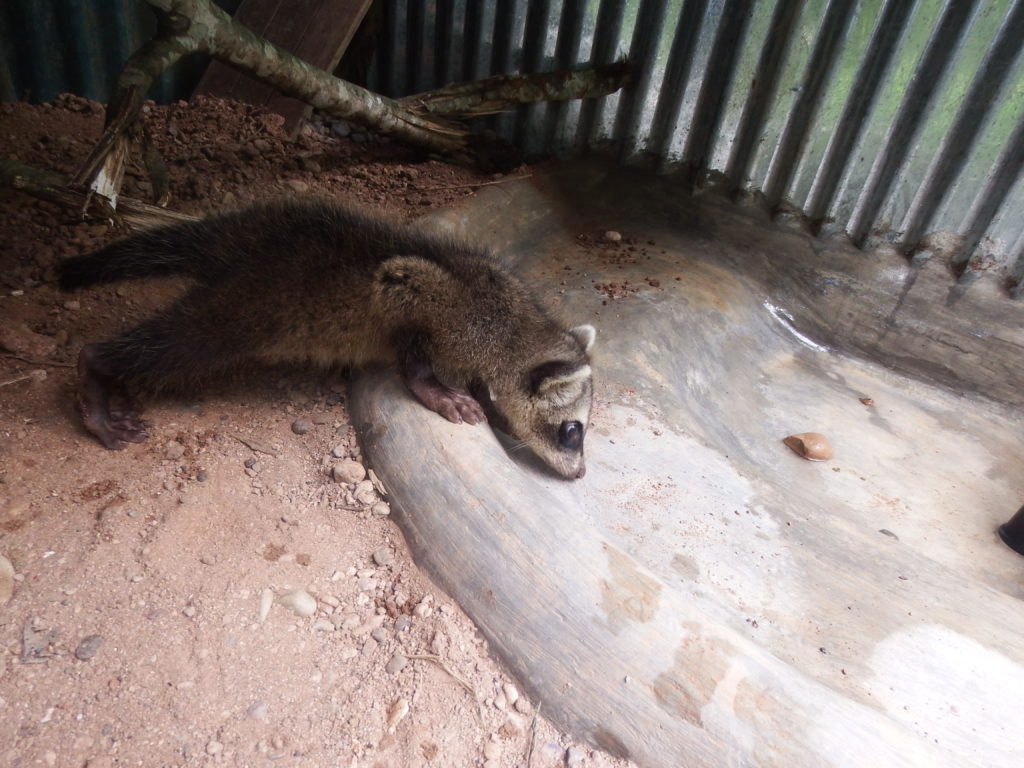
Payco inspecting the waterbasin
With the visit of the Ministry arrived a new animal, a young male crab eating raccoon, now named Payco, estimated about 3 months old. Although we officially are not excepting any new animals, we make an exception, if we know we can safeguard our resident animals, as well as can sufficiently take care of the new arrival. Payco will spend the first two weeks at a small cage attached to the family house before going into the former enclosure of Eona. He will follow the same path as Eona, taken for some walks outside letting him at some point decide to return or not to sleep in his enclosure during the day. Of course we hope that we can join Eona at some point with Payco to see if we can do some match making…..
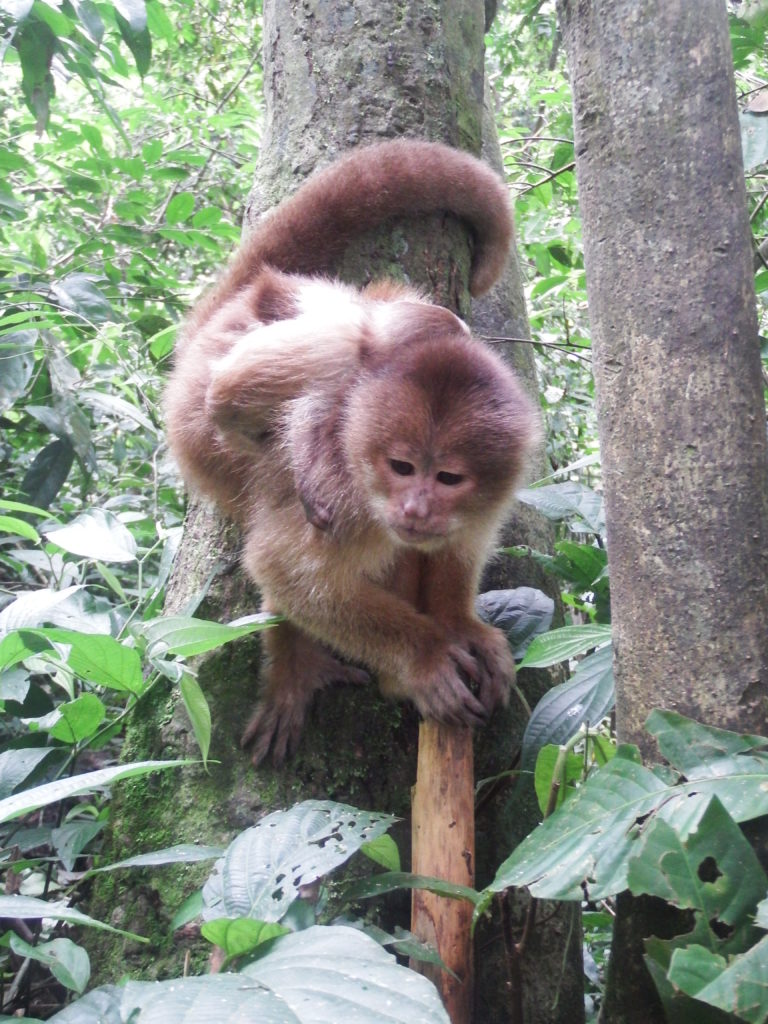
Chaira (female white capuchin) with baby 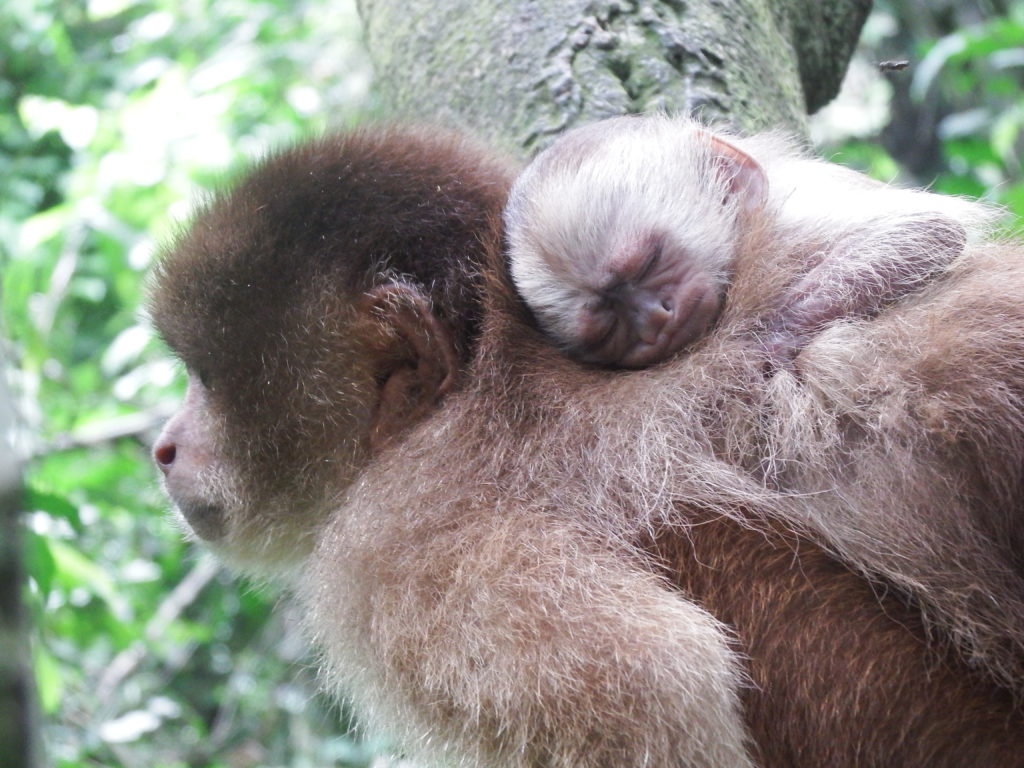
Chaira, female white capuchin with newborn
Although not easy to surprise, Kayla got one this time on camera, while she was making her round of photoshoots for the monthly update. A newborn where it was not expected: our white capuchin Chaira, who has joined the large headed capuchin group since several years, has a baby!
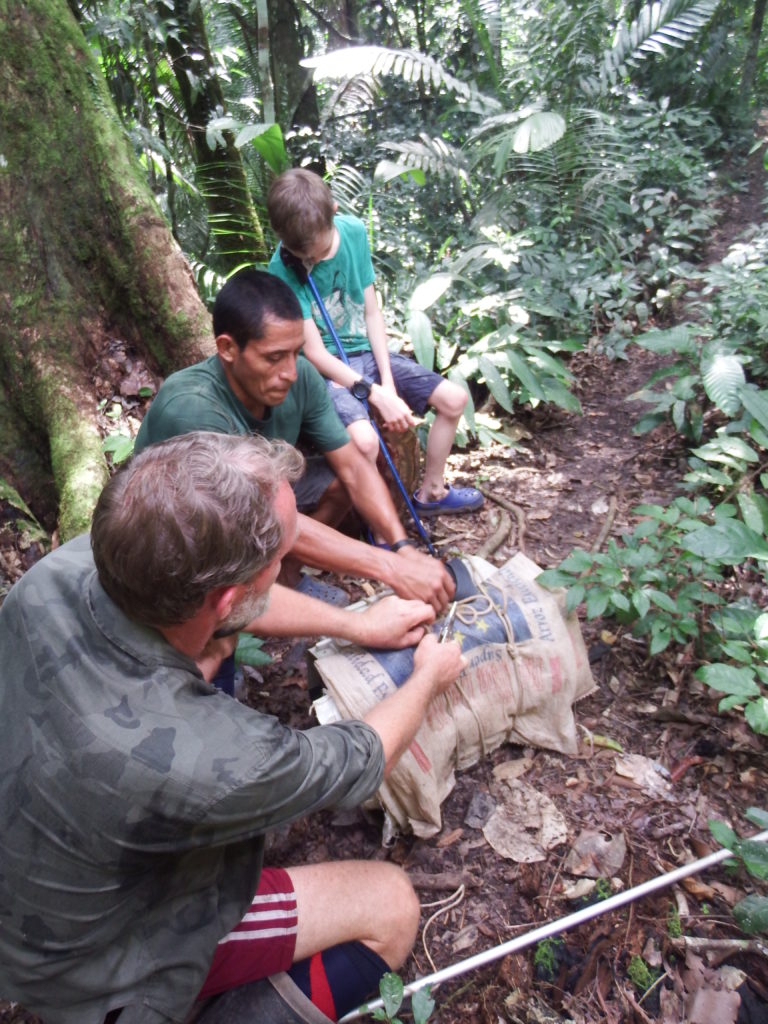
Capture and relocation of wild margay 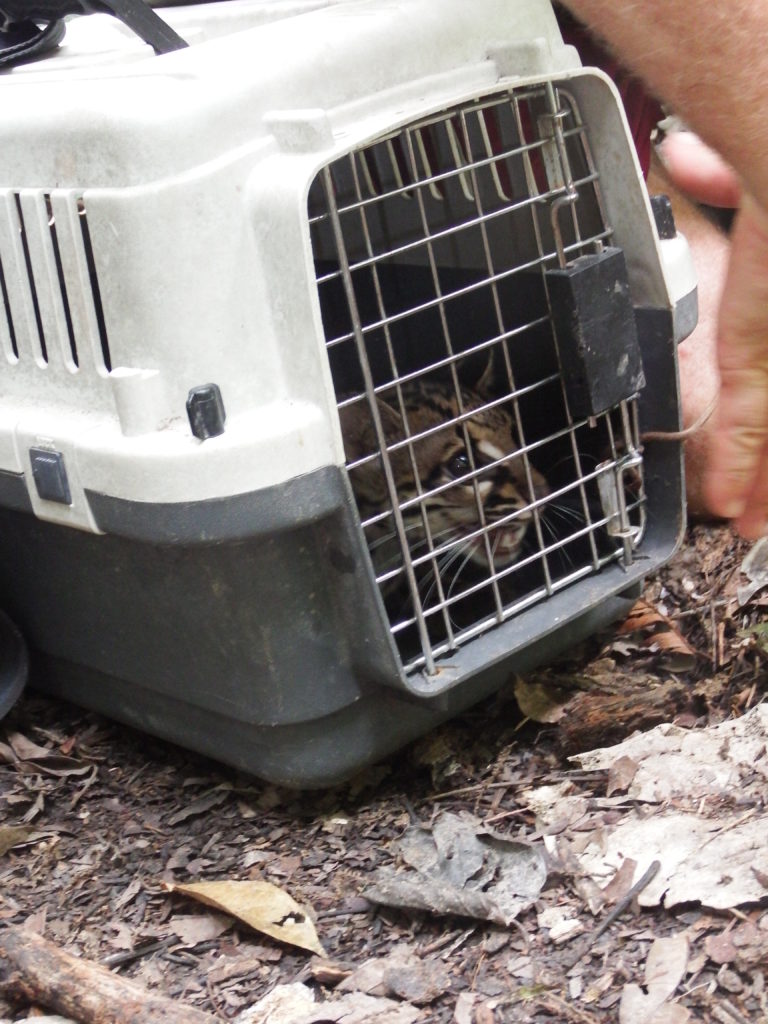
release wild margay 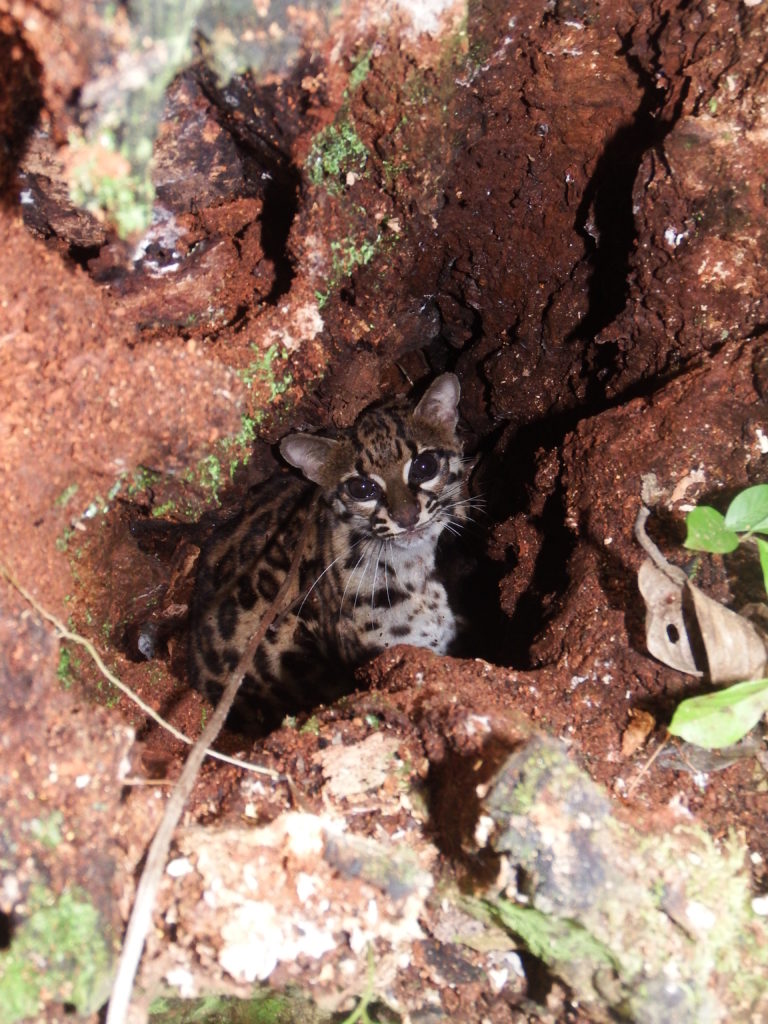
Wild margay trapped at neighbours EV
And then there was a neighbour at lunchtime asking if we were missing an ocelot. He had trapped one in a trunk next to his house…..but both our margays were happily sleeping in their cages. The neighbour did not want the animal to go and then killing his chickens, neither did we want him to kill the animal, so off went Douwe (with Geyler, Kayla and Marlon) to help him out. When they arrived they did not find an ocelot but a young adult margay, female, trapped in a trunk. The neighbour had closed her in. After some struggling with a rope, Douwe could get her into a transport box, and after some more walking, they released her back to where she belonged in the wild. As soon as she figured the door of the small box was open, she jumped out and off she went. We hope she learned from this experience, and will think twice the next time about getting to close to humans!
 Construction and other
Construction and other
Variation is the key to keeping the animals entertained and if the same can be said about keeping people happy then Douwe, Geyler and Machico should be very happy men. This month has seen them all hard at work clearing boundaries and walking paths, tiling and painting in the new volunteer toilet, rebuilding enclosure interiors that have grown either tired or been destroyed by overzealous inhabitants, building a new secure storage at the Don Jorge Organic Plantation. All this and still finding time to harvest bananas, papayas, oranges, yuca, verdulaga, zapote, anonamacambo and araza, and thus keeping us humans and animals very happy with the added variety of fruits and vegetables.
And while having finally some time Craig and Geyler could start with the ever ongoing project of renewal of branches in the birdcages, by redecorating the Pichu enclosure, with new bamboo rods, new branches and some bamboo leaves. A grateful job, as all the birds directly after are seen interacting and demolishing the new put in refreshments.
 Volunteers
Volunteers
With February coming to a close the official volunteer count remains at three. Kayla, Marlon, Olivia and Douwe taking time from their already busy schedules is essential in keeping things on track and heading in the right direction.

